*** Update: The new Garmin HRM Pro is the most update product in this category. Click the link to see the full Garmin HRM Pro In-Depth Review***
It’s been a few months since Garmin introduced the HRM-TRI & HRM-SWIM, which record heart rate data while you’re swimming. They started shipping the units back in mid-August, and through some recent travels in September & October I’ve finally gotten the chance to get some solid aquatic time with them – especially open-water mileage.
To that end I’ve got two different HRM-TRI/SWIM sets of straps. One that Garmin sent me as a media trial, and one that I went out and got myself. They both just happened to arrive the same week. At some point here shortly I’ll send back the one Garmin me to try out. Obviously, I’ll keep the other one.
With that, let’s dive into things – quite literally.
Unboxing & Components:
Now, there’s really four different ways you can come upon the HRM-TRI or HRM-SWIM. They would be:
A) As part of various Garmin triathlon/multisport watch bundles
B) As part of the Garmin HRM-SWIM & HRM-TRI Bundle
C) Buying individually the HRM-SWIM or HRM-TRI straps
D) Stealing the strap out of your friend’s swim bag
In my case, I lack swim friends to steal from. I also lacked a set of separate boxed straps. So instead, I got the triathlon bundle option – which is obviously total overkill here. But a strap is a strap, so here we go. In this case, the FR920XT Triathlon Bundle:
Now, after we unbox it all, we’ve got the following parts:
Those parts would be: Paper junk, FR920XT, FR920XT Quick Release Kit & tool for it, HRM-TRI, HRM-SWIM, and bike mount bands.
Because I’m just focusing on the HRM-TRI/SWIM, let’s separate out things we need for that, versus all the other stuffs. To the left is the other stuff, to the right is the HRM-TRI/SWIM stuff.
Now, to focus a bit more – is the HRM-SWIM strap:
And next the HRM-TRI strap:
You’ll notice the pods on them are much more streamlined towards the edge of the strap, but instead are a bit thicker. What this helps to do is to minimize chaffing of your skin by the edge of the strap, which typically occurs when a pod pushes the strap inwards onto your skin.
As for changing batteries, it’s sorta similar to existing straps. You’ll just need an itty-bitty screw driver. Plus something to pry the rubber cap off. I used my fingernail on one, but the other was more sticky – so I grabbed an Ikea knife.
The unit just uses a standard CR2032 coin cell battery, Garmin states about 10 months of usage per battery – assuming 1 hour a day.
Now, one thing to be aware of here is that the pod doesn’t come off the strap – ever. Unlike the existing HR straps where the pod can pop-off the strap (so you can replace the strap), the HRM-TRI/RUN don’t support that. It’s a bit unclear at this stage how those will wear over time, or how Garmin might deal with swappage down the road (since transmitters often far outlive straps).
HR Strap Comparisons:
Before we go too far, we probably ought to have a bit of a reconciliation on the confusion that is all the Garmin straps right now. There’s a lot of them, and they’re all a little bit unique.
First up is the HRM-TRI & HRM-SWIM units. Remember the HRM-TRI is designed for open-water use, cycling, and running. The reason it’s not designed for pool usage is that it doesn’t have enough ‘stick’ to hold to your body when you push off the wall. This is much less an issue for woman in a one-piece bathing suit than men. For me, using the HRM-TRI in a pool lasted about 2 lengths. In addition, Garmin is telling folks via support channels that the HRM-TRI may only last about 30-50 times in a pool from a strap standpoint, due to pool chemicals. So while that’d be fine for occasional use – you’d want to avoid it if you’re swimming 3-4 times a week with it in a pool.
The HRM-SWIM meanwhile is much wider, and has a sticky-like material on the band that keeps it in place on your body. Sorta like a silicone-ish kinda thing going down. It holds to your body quite well when you push off the wall.
In order to ensure a good fit, the HRM-TRI & HRM-SWIM both come with extenders to go from short (or very short) to longer. The HRM-SWIM has far more of these to ensure it’s snug on even the smallest frames (the HRM-TRI can go just as small, but since the material is elastic, it doesn’t need as many sizes):
Now, what about functionality? Well, here’s the differences:
HRM-TRI: Records swimming data and sync’s afterwards, transmits standard ANT+ HR data, also transmits Running Dynamics data
HRM-SWIM: Records swimming data and sync’s afterwards, transmits standard ANT+ HR data, designed for pool usage
The HRM-SWIM can certainly be worn on a run or bike. I’ve done it. But, it’s just not as comfortable. It’s super wide and the material isn’t really that breathable. It’s purely a comfort issue, not a technical issue (aside from not having Running Dynamics for those interested in that).
Now, just to compare a bit more, here’s what the rest of the lineup of Garmin straps looks like:
(Note: There’s also an HRM4 now, which is simply an HRM3 with a slightly different strap – but for whatever reason I couldn’t figure out where I placed mine when I took this photo and eventually gave up on finding it.)
Next, both Suunto & Polar have swim-capable straps in the market. Suunto does the same thing as Garmin by caching the data underwater in the pod. Whereas Polar actually broadcasts over an analog stream to the watch in real-time.
Unfortunately, neither the Suunto or Polar units stay on my chest when I push off the wall with any speed. And no, I’m not going to wear suspenders to the pool, nor wear a shirt over the strap.
How it Works:
So let’s cover some basics on how the strap works. As well as what it does – and doesn’t do. The first thing to understand is that at its core, both are ANT+ heart rate straps. That means you can use either with any other ANT+ compatible devices out there. If you have for example an older Garmin Edge 500 – it’ll work with that. Same goes for a PowerTap Joule GPS+. But like normal it won’t work with Polar, since that’s Bluetooth Smart (just like the Polar straps won’t work with Garmin).
But what sets the HRM-SWIM & HRM-TRI apart from other ANT+ straps is that they have storage within them. They are effectively like little USB thumb drives, without the part you stick in your computer.
When you first pair your new HRM-TRI/SWIM strap to a supported Garmin device, it sets the internal clock of the strap. Yes, that’s right – the strap has a clock. Each time you go for an activity that strap wakes up and looks at the time and starts recording the activity. Later on, it gives your Garmin watch that file wirelessly – which it then matches up and combines together.
Now only certain Garmin devices support the whole sync process. Today that’s the: Garmin Fenix3, Garmin FR920XT, and Garmin Epix. No other watches do. Technically though, a 3rd party could create an app to do so via ANT+, but nobody has done so today. If said app were created for a PC for example, you could go to the pool and complete your swim, then just come home and sync your HR file (lacking swim strokes, unless you had a separate watch with that).
What’s important about that to understand though is that this strap can’t transmit through water. In fact, no ANT+ or Bluetooth Smart strap can. The only way straps can transmit through water is on analog signals (which is what Polar T-31 coded straps can do).
This means that while swimming you will be UNABLE to see your heart rate ‘live’ and in real time.
Instead, what Garmin does is essentially a variant of ‘store and forward’. Basically the strap goes about recording your heart rate, unaware of what activity you’re actually doing. You could be swimming, or doing the horizontal shuffle – it doesn’t know. All it knows is your time and heart rate. Later on though, after the swim when you press the ‘Save’ button, the watch goes off to find its strap friend and download that data.
A few seconds later, the data is transferred. It’s at this point that the data is combined with your existing activity data (swim/bike/run/sex/whatever) – creating one cohesive file of HR + activity.
This is actually almost exactly what Suunto does as well with their Ambit3 series, except they do one thing that’s a little bit cooler. They backfill data in real-time at the end of each set. This means that you can look at a graph of your HR for that set. Whereas on the Garmin units you won’t get a graph but you will get your average/max for the set if you’ve configured a data field/page as such.
So, to recap a few core points:
A) You must have a compatible Garmin watch (FR920XT/FR735XT/FR935/FR945/Epix/Fenix 3 Series/Fenix 5 Series, Fenix 6 Series)
B) The watch will NOT display your HR in real time, only after a set
C) You must at least pair your watch once before you swim
D) You must at least start/stop your watch to create an activity file to match
E) The strap is not compatible with other companies like Suunto, Polar, Wahoo, etc…
Got all that? Good, let’s start using it.
Openwater Swimming:
So, let’s head outside first, because that’s more fun. I’ve done a bunch of openwater swims, and the process for using the strap is super straightforward. First, you’ll put the strap on. If you’re doing a triathlon, you’ll want to use the HRM-TRI. If you’re doing just a swim that day, it honestly doesn’t matter much which strap you use – they both work identically outside.
That’s also true if you’re wearing a wetsuit. You’ll (obviously, I hope) put the strap under your wetsuit against your skin.
For my testing I actually wore both straps much of the time, each linked to a different unit. I had one strap paired to a Garmin FR920XT, and another strap to the Garmin Epix. I also did one swim with it paired to a Fenix3. There’s no tangible difference in how any of those units react to either strap, just a case of me trying to do more tests.
Like normal, you’ll select to do an openwater swim. At about the same time it’ll note that it’s found and connected to your HR strap. You can see I’ve got my HR and zone displayed on the screen behind it (a data field/page I added).
I like to validate that I have a heart rate value shown on one of my data fields – since it validates that the strap is awake and correctly reading signs of life.
Once that’s done, it’s simply a case of pressing start and beginning your swim:
While swimming you won’t get any data on the unit itself insofar as a HR reading. It’ll show a blank there:
After some time you’ll finish your swim and stop your activity. It’s at this point that before I press to save it, I ensure I’m above water and that the HR strap has been found again.
This step is entirely unnecessary, but I prefer it because it ensures the watch sees the strap. That’s ultimately required to download the data from the HR strap to the watch:
The download process only takes a few seconds at most to complete once it finds the strap.
Now during my time using it in September/October I did see two cases where the FR920XT failed on the download portion – leaving me without HR data. A few other users saw the same thing. As a result, Garmin took a look at things and issued an update about a week ago to the beta firmware updates (Update: And now also 6.10 production too). This update allows you to retry the download should it fail (as well as fixes the root issue). I was able to use the beta firmware update to download my previously failed swims.
Speaking of which, once it’s done downloading – you’ll see your HR summary on the watch itself – just like you would have after a run.
All of this is then shown on Garmin Connect afterwards, also like it would be normally for a run/ride:
You’ll further see averages and such in the totals area:
On the HR chart, you can zoom in and highlight over sections to see specifics:
Here’s a smattering of openwater swims to look at the details of:
Now in general you’ll find that swimming HR’s will be lower than running or cycling (in increasing order of equivalent perceived effort: Swimming, then Cycling, then Running). Also, for open water swims the main goal of HR data is really more about collection – such as during an Ironman race, to be able to look at the whole picture. You could then figure out if by chance you went out too hard in the swim (common for first timers).
Note that there are no issues in water type. I swam in both fresh water and salt water. I also swam in really damn cold water, and hot water. No problems.
Also note that the HRM-TRI works just fine above water too. I’ve been using it for the last 2 months cycling and running without any problems – seems to work just fine there too. Note that the HRM-TRI transmits Running Dynamics (and ANT+ HR), whereas the HRM-SWIM does not and only transmits regular ANT+ HR.
Pool Swimming:
Next up is pool swimming. Spoiler Alert: It’s pretty much the same as openwater swimming.
Just like with outdoors, you’ll start by putting on the strap first. In my case I do this in the pool at the end of the lane, since I like to minimize my dork-factor on the pool-deck.
Next you’ll go into Pool Swimming mode on the watch. This can be any of the supported watches.
At about the same time it’ll find and pair to your HR strap. Depending on how deep your pool is, you may have to pop yourself out of the water to make this happen. Or, you can just press the watch up against the transmitter on your chest. As long as it’s within 1-3cm (an inch) it’ll find it. You want to then ensure that it shows your HR (technically not required, but something I like to do since it validates it’s all paired and happy).
With that, off to swim you go!
Remember that the strap will NOT show your heart rate live during sets. It’ll be blank since ANT+ signals can’t transmit through water. However, at the end of a set if you bring the watch next to the transmitter, it’ll usually show you your HR within a few seconds. Of course because this takes a few seconds it’s going to show you a lower value than it would mid-set, as you’d have recovered some. However, you can also configure a data page to show you the average and max HR for the previous interval – as well as HR average for the entire swim.
After you’ve completed your swim, you’ll go ahead and press stop and then save. At this point it’s important to have the strap and the watch out of the water next to each other. I just take the strap off here, that’s fine. Or, step out of the water.
It’ll follow through the same steps as outdoors and save the file, and then give you details on the overall swim. You’ll first see it showing Downloading the Data:
Then Saving the Data:
Next, once back on Garmin Connect you can dive into your HR for each set. For example, I did some easy 500’s first, and you’ll see my HR is lower:
Then I did a descending set, and you can see my HR increase as my pace increased:
Cool stuff. Here’s a pool swim session if you want to look at it.
So how well does the HRM-SWIM stick to my body? Great.
I didn’t have any problems with it on my chest staying put during hard pushes off the wall (either flip or open turns). It does exactly what it says it does.
Now, for fun I did try using the HRM-TRI in a pool. I’d put the results as ‘so-so’. It lasted (stayed put) only a few laps when I pushed off hard (normal), but did last a bit longer than a regular strap when I didn’t push off as hard. Personally, I wouldn’t use an HRM-TRI in the pool since I think it’s just not much different than a regular chest strap in that sense of not being an ideal solution in the pool.
Finally, note that for steady-state swimming (like outdoors), you can use either strap – since it’s just that action of pushing off the wall that generates enough aquatic hydrodynamic force to pull the strap off your body (men primarily, or in some cases women if wearing a two-piece suit depending on the style).
Wrap-up:
As competitive products added in support for recording swimming heart rate data – it was only logical that Garmin would eventually get into that game, and with the HRM-TRI & HRM-SWIM, they’ve done just that. In my testing, the units both work well, and without question the HRM-SWIM is the best pool-swimming strap on the market today (of only three options) – especially for guys. If you’re a gal wearing a one-piece suit in the pool, you can probably get away with just buying the HRM-TRI only – as that gives you the same functionality in the pool as the HRM-SWIM.
Now, one final note is that some 3rd party sites (Training Peaks, Strava, etc…) are having challenges consuming the swimming activity files generated when the HRM-TRI/SWIM straps. This is because Garmin essentially appends the HR data to the existing workout file, rather than make it appear seamless. This is using a slightly updated version of the ANT+ specification that almost nobody has implemented yet. On one hand it’s good to see Garmin being innovative, but on the other hand they should have ensured 3rd party compatibility ahead of time (even if via some shim process). Or at least worked with those companies to ensure supporting of the metrics.
The ‘fix’ for that is that these 3rd party companies have to update their sites to use the recently released FITSDK version (16.30) in order to support the appended HR data. I’m sure that’ll happen sooner or later, but it’s kinda a bummer for now.
Finally – as for the value of heart rate data during swimming – that’s a bit more subjective. I think it might be interesting to trend over time in terms of matching perceived effort to actual splits, so that as a swimmer (especially open water), you know what those intensities feel like. But at the same time, since you can’t view your HR in real-time, it’s less valuable.
With that – thanks for reading!
Found this review useful? Or just want a good deal? Here’s how:
Hopefully you found this review useful. At the end of the day, I’m an athlete just like you looking for the most detail possible on a new purchase – so my review is written from the standpoint of how I used the device. The reviews generally take a lot of hours to put together, so it’s a fair bit of work (and labor of love). As you probably noticed by looking below, I also take time to answer all the questions posted in the comments – and there’s quite a bit of detail in there as well.I have partnered with the retailers on the left, and any shopping you do through those links or the ones below, helps support this website. Thanks!
Garmin HRM-Pro (Amazon)
Garmin HRM-TRI Strap (Amazon)
Garmin HRM-SWIM Strap (Amazon)
For European/Australian/New Zealand readers, you can also pickup the unit via Wiggle at the links below, which helps support the site too! With Wiggle new customers get 10GBP (or equivalent in other currencies) off their first order for anything over 50GBP by using code [Currently Disabled] at check-out after clicking the links below.
Garmin HRM-TRI (EU/UK/AU/NZ – Wiggle)
Garmin HRM-SWIM (EU/UK/AU/NZ – Wiggle)
Additionally, you can also use Amazon to purchase the straps (though, no discount). Or, anything else you pickup on Amazon helps support the site as well (socks, laundry detergent, cowbells). If you’re outside the US, I’ve got links to all of the major individual country Amazon stores on the sidebar towards the top.
Thanks for reading! And as always, feel free to post comments or questions in the comments section below, I’ll be happy to try and answer them as quickly as possible.


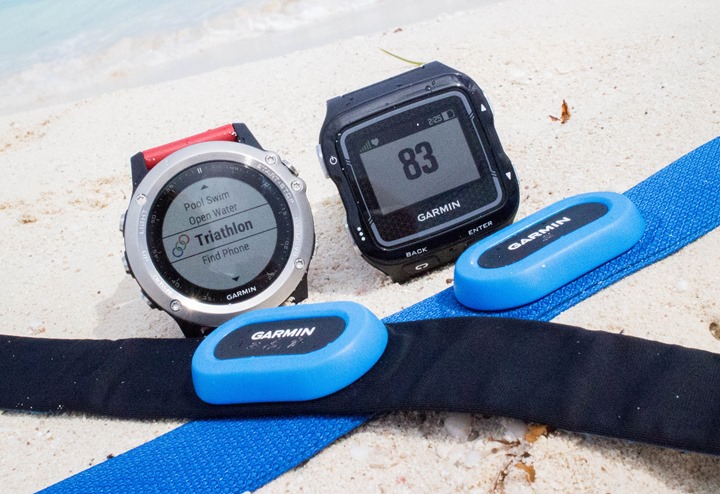
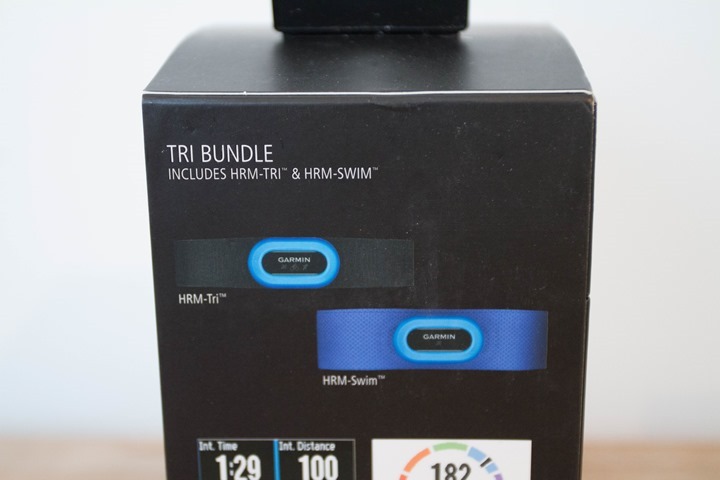
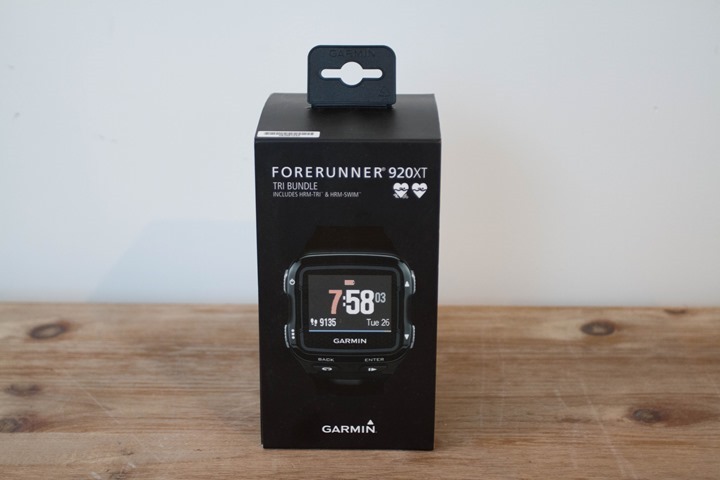
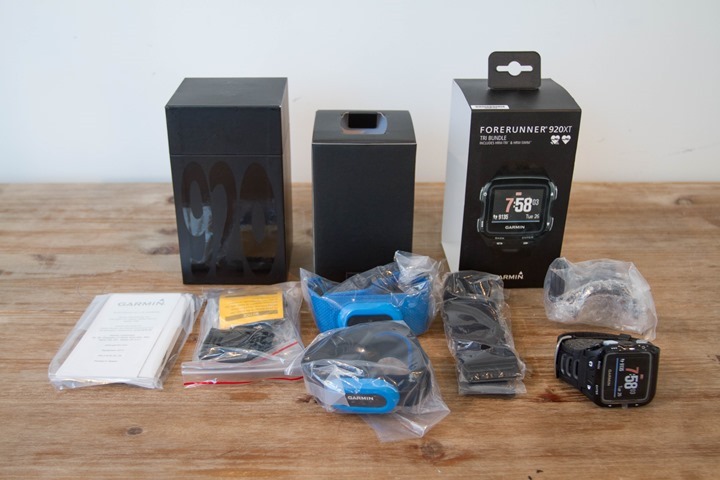
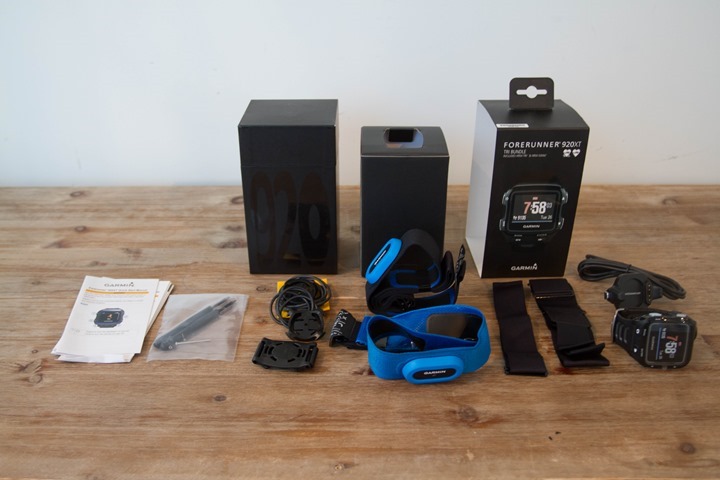
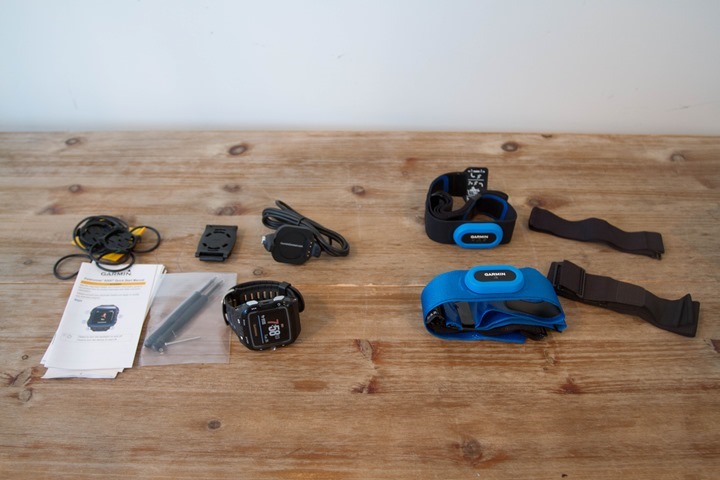
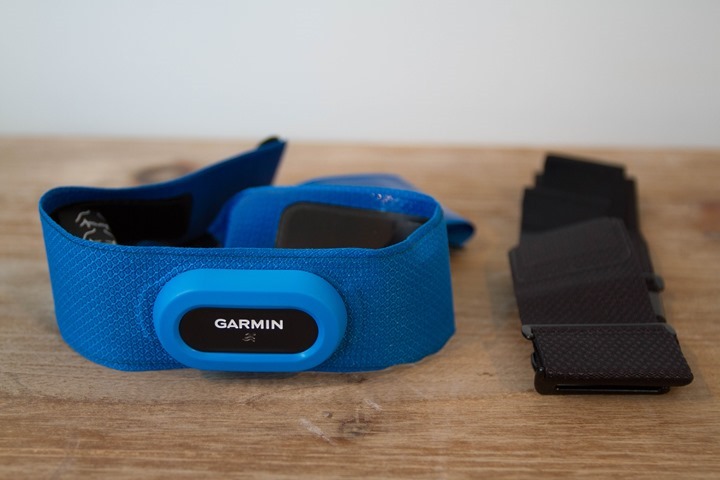
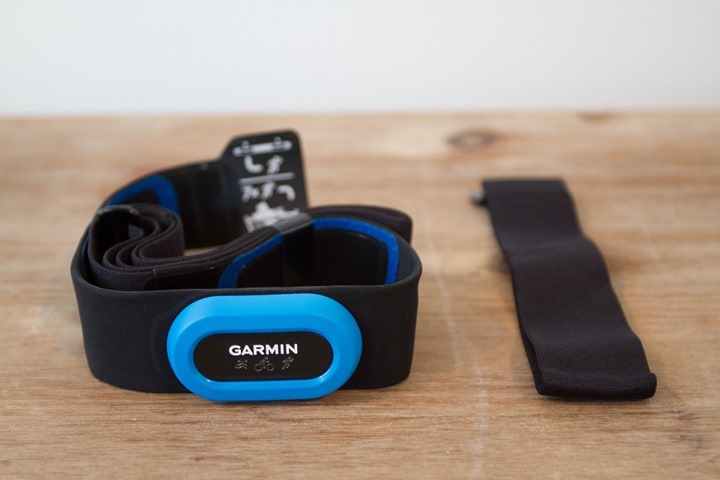
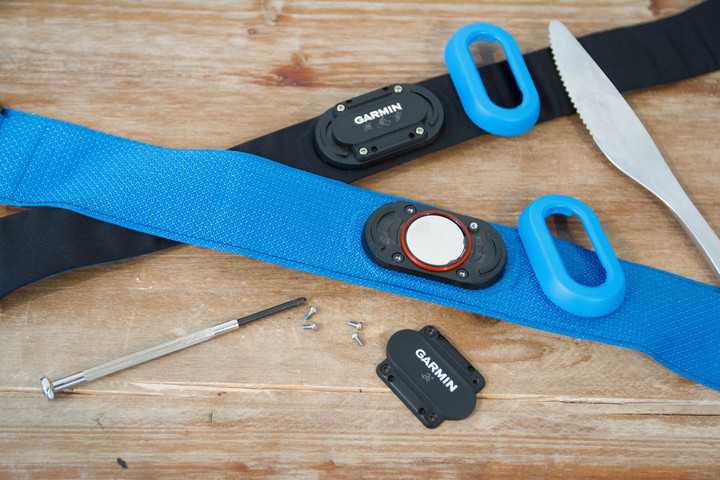
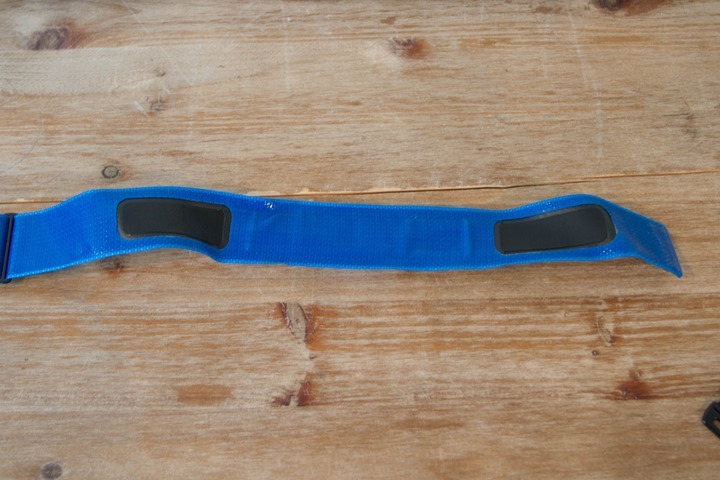
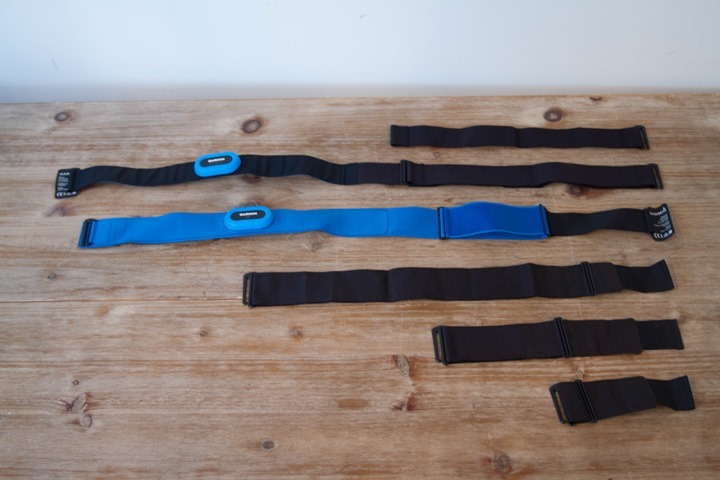


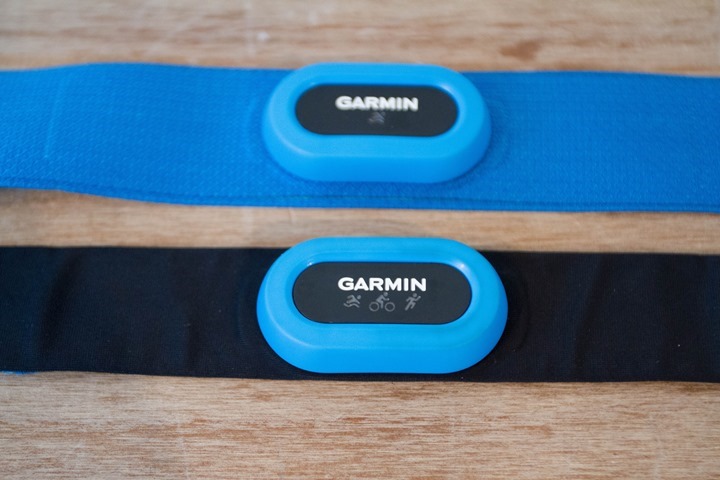
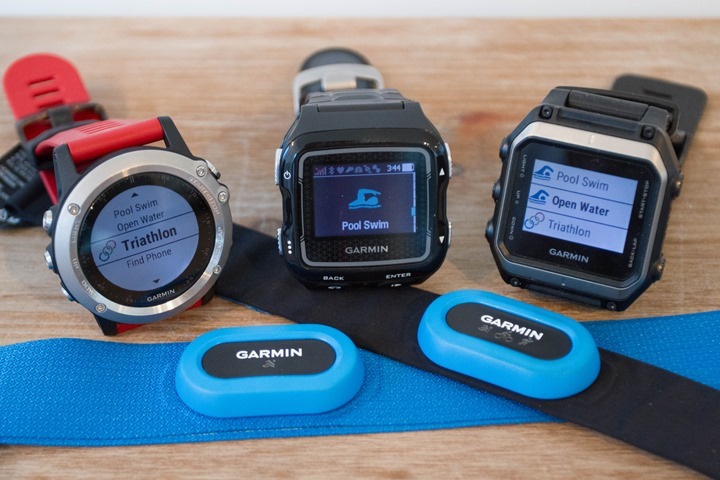
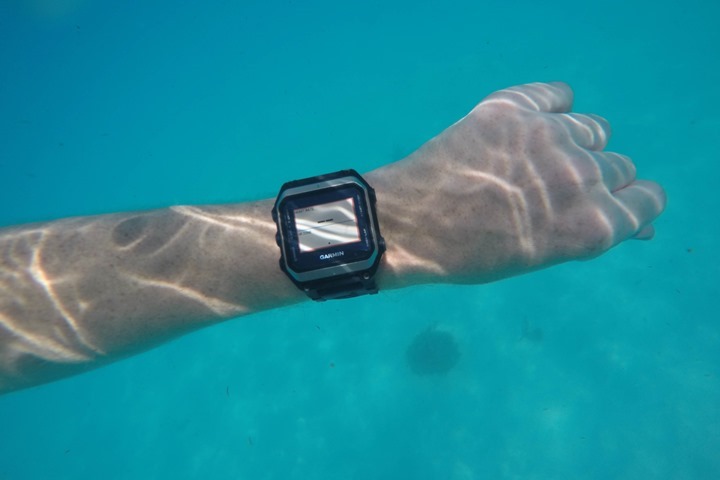
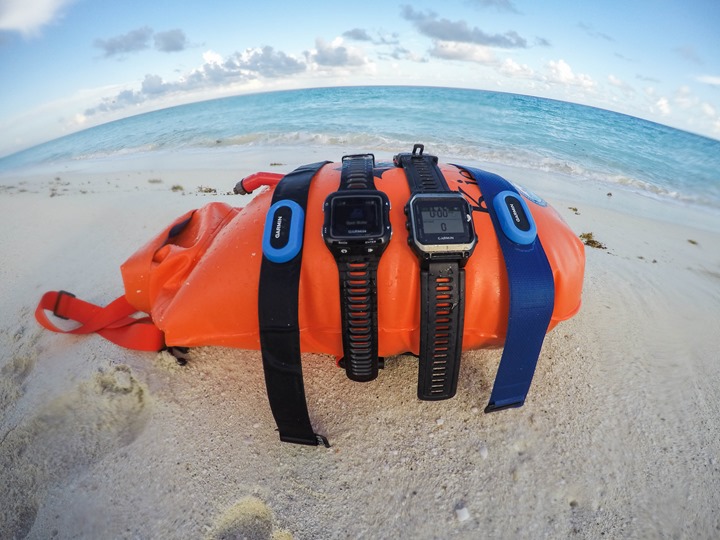
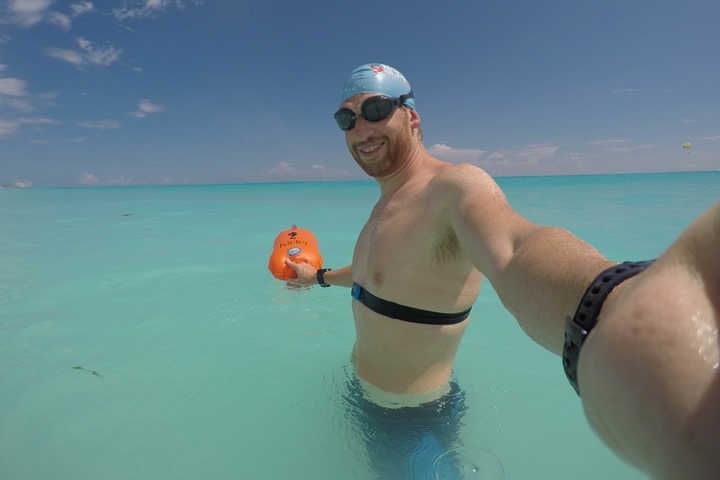
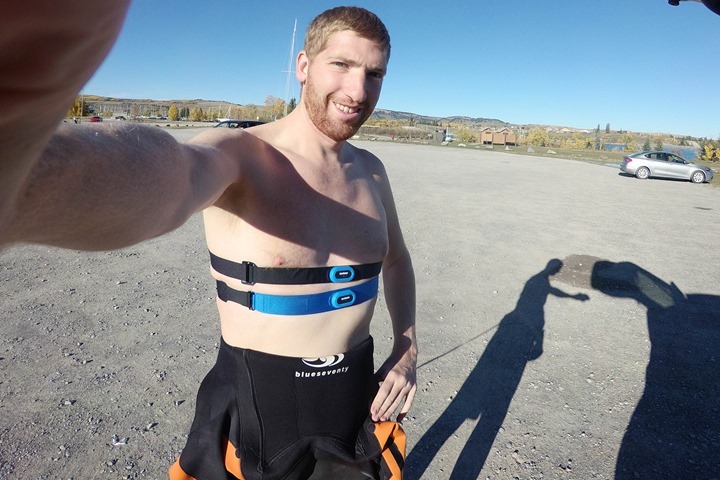
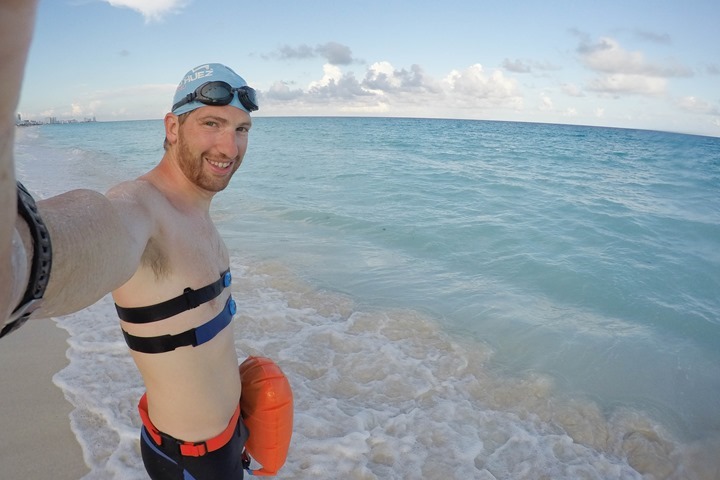
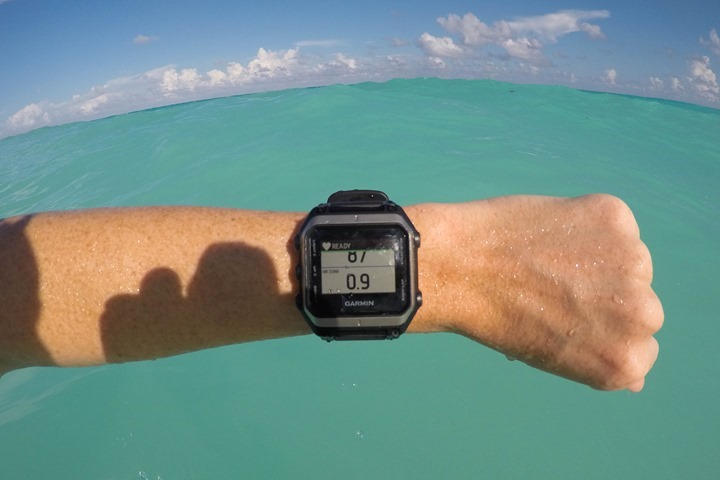
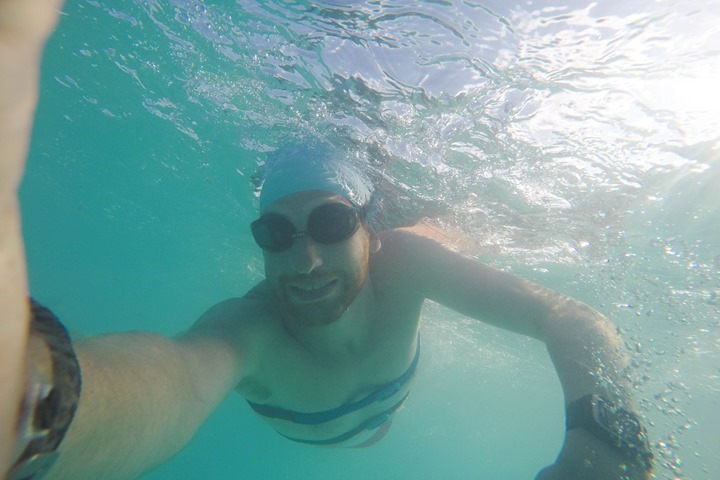
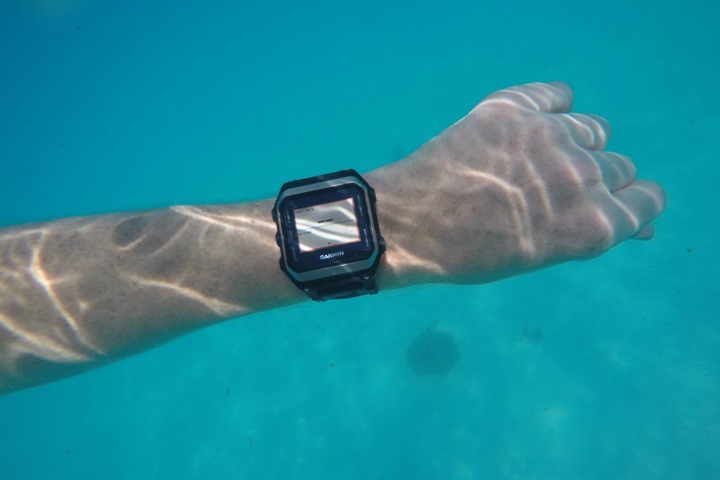
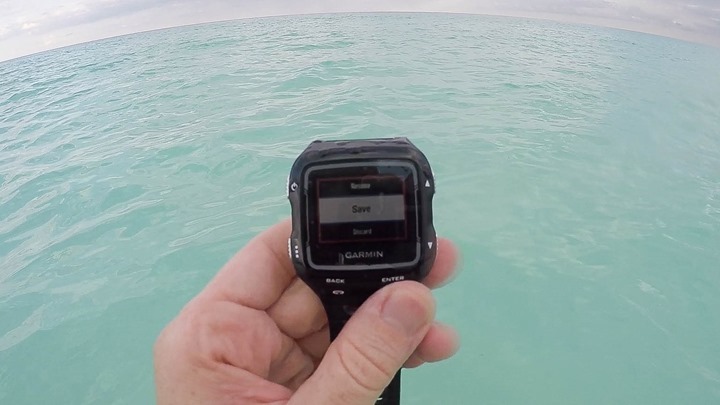
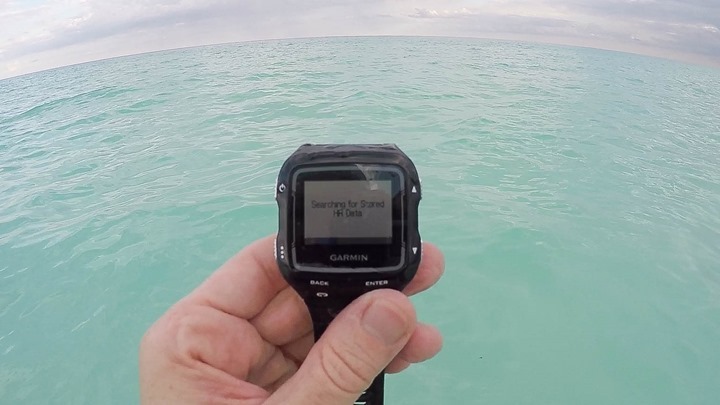
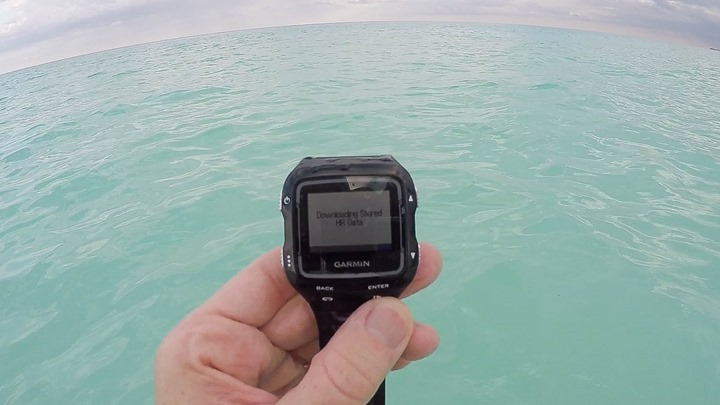







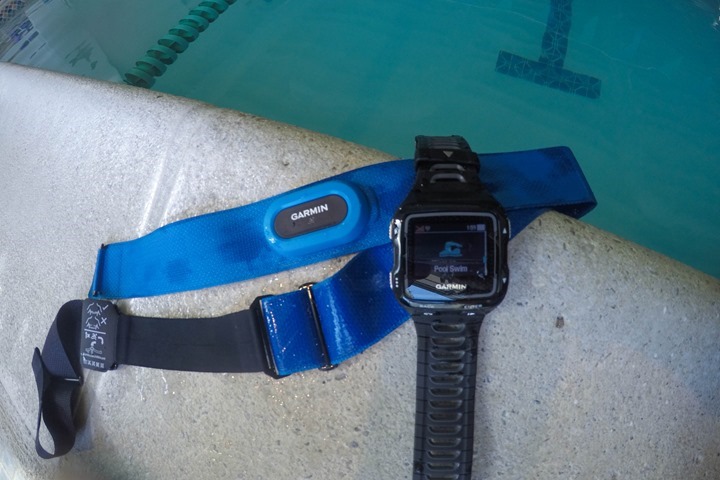
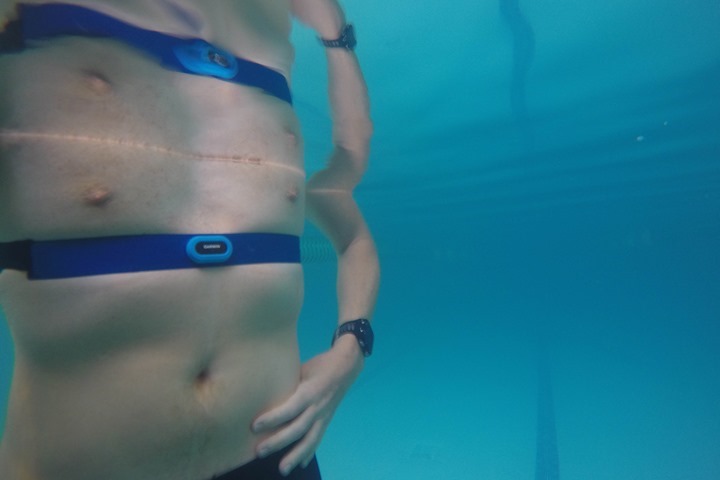
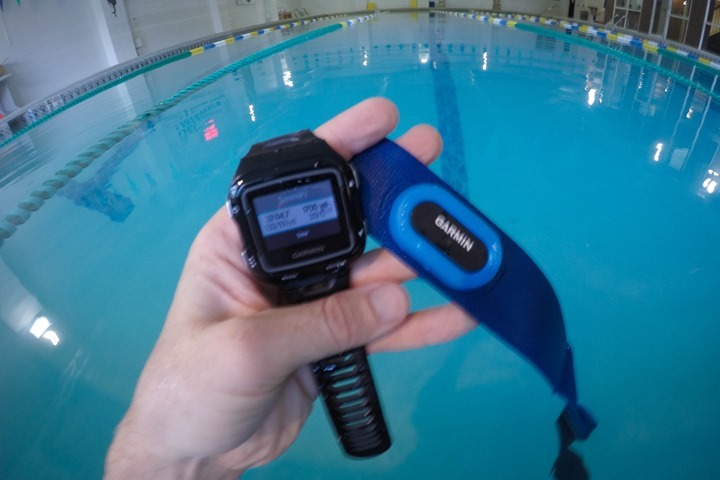
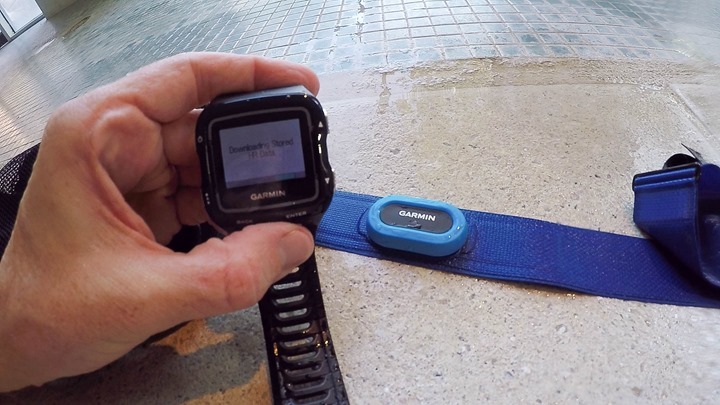
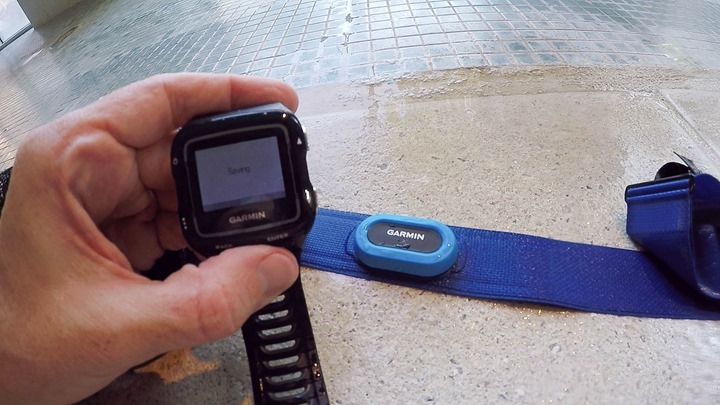
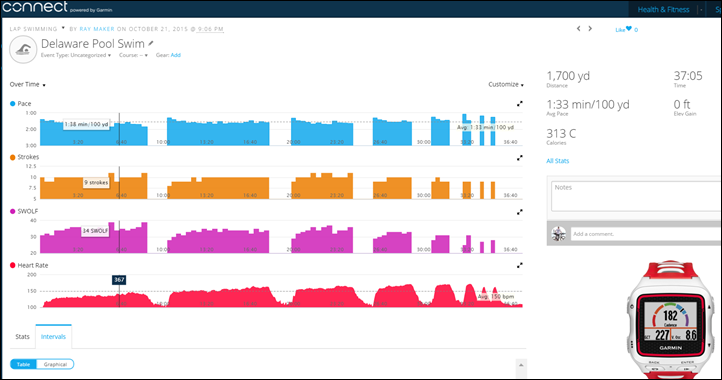

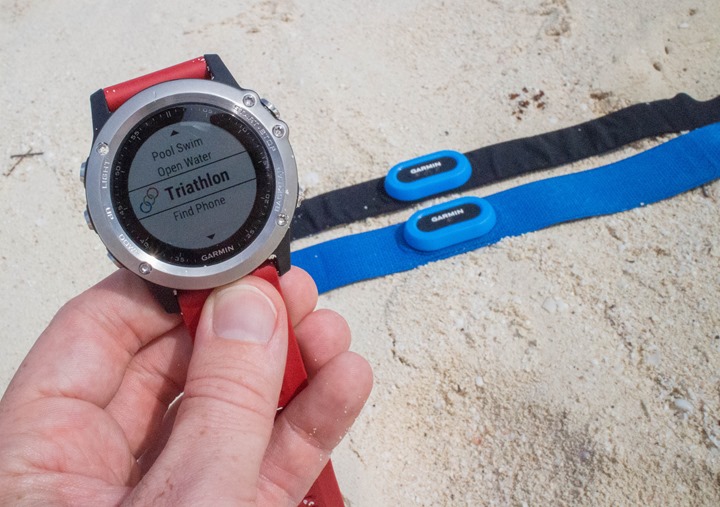


















Do these have the capability of sending out true R-R intervals (for HRV) like the Polar H7 or only HR estimates?
Thanks for the review. I have been looking forward to this one.
Do any of the swimming / multi sport watches work effectively with treadmill swimming (aka Endless Pool)? I have been looking for information on this all over the inter-webs without success.
Unfortunately not. There’s nothing I’m aware of that works in an endless pool for tracking swim data.
I did use the open water mode of my Garmin 910Xt for that purpose. At least this way I got the number of strokes (and I know my number of strokes per 25m).
I would think the Polar v800 in either indoor or open water swimming mode would work fine for this. The OW mode might be odd with “noise” GPS signals mixed into it, but you’d get your stroke counts, or use the indoor mode and ignore what I’d imagine would be somewhat random “lap” counts, but otherwise it should work great for that.
I could be wrong though, my V800 works very well in the pool, I’m a cruddy swimmer, and so sometimes I stop mid-lap or don’t have a good push-off so it doesn’t always sense my laps properly, but if I do 30 laps, it’s usually +/- 2 on the count, and worst case I’ve seen it miss maybe 25-50 yards out of 1500-2000. But having the heart-rate “live” is great for getting myself to pace better.
I’ve tried just about every heart rate monitor in an Endless Pool and I haven’t found a one that works consistently! So far: Suunto memory belt (2 versions), 3 Polars (all analog chest straps) and 2 Swimovates. Of those the Swimovate worked the best in a pool but not at all in the EP. About 3 weeks ago I got the TomTom Spark and if I set it on Treadmill mode and change my height to 3 feet 4 inches, I won’t get any of the swimming metrics but the distance is about correct plus I get accurate Heart Rate while swimming (at least I THINK that it is accurate).
TomTom lets you try out the watch for 30 days so you might give it a try.
Polar V800, Loop, M400 all work under water with the polar H7 heart strap
Are the issues you mentioned with 3rd party sites also present when the data is coming through Garmin Connect or just when you try to upload directly the file to those services? (or otherwise, is Garmin Connect trying to integrate the HR data to appear seamless, or is just sending the raw data to the partner site?).
It doesn’t much matter, it breaks both ways since it’s the same .FIT file.
What happens is that you’ll see the Avg/Max HR values, but never the actual track. That’s because the Avg/Max HR values are placed in a different portion of the .FIT file that these services know how to read.
Ray
Do you know is Training Peaks plans to integrate the data? I think it is interesting to have but unless my coach can see the data it is just me increasing my dork factor in the pool.
Also the Garmin mobile app does not show the graph… that is kind of goofy
Please don’t come to swim @Recife, BR. Here we have a lot of sharks attack at the sea (Boa Viagem beach). :)
I was all ready to click go on this, till I realised it doesn’t download as you go (ie while resting between sets)
Do we think Garmin will change this in the future?
I’m not sure. I’ll try and find out.
Between sets, if you put the watch close to the strap, it will upload some data. For example, it will tell you your current HR as well as the previous interval average HR. I don’t think there is any way in the watch to see a full HR graph, and I don’t usually rest that much, but I normally read the interval avg HR and instant HR several times during recovery.
It DOES sync while resting between sets. Ray, maybe that should be called out a bit more explicitly? When reading the review I got the impression that it only syncs after you stop;;;
I can swim 4 laps, then pause. While hanging at the side I will pull up so that the strap is out of the water. After a few seconds the Fenix3 will show me the average HR of the last lap, as well as my current HR. So I can easily see between sets how big the effort was, how my pace was in relation to HR, and could even do things like “start next set when HR is below x”, “increase pace each set until avg HR for 100m is over y”.
Now granted, I still have no clue what the HR values should be for effective training, but that is simply because I never had it before… and I think looking at those values right after each set helps make a correlation between perceived effort and HR.
Hi Chris-
I updated it a bit late last week to be more explicit that it syncs avg/max for each. I think I got all the references, but let me know if I missed something and I’ll be happy to update/correct.
Cheers!
It’s great that Garmin is finally tackling this area but if they would simply add the ability for the Fenix2/3 to receive live HR data via ANT+ during swims, then these straps wouldn’t be necessary. With my previous Timex Global watch, I wore a MIO Link adjacent to the watch and it recorded accurate, live HR data during my swims. When I upgraded to the Fenix 2 I lost this ability.
Unless there is a specific compatibility issue, this combination should work (the Mio Link transmitting ANT+, to the Fenix 3). If for some reason it won’t pair, it may be an issue with the Mio side just as likely as the Garmin side.
I don’t have either, so maybe there are known issues, but Garmin says it pairs with ANT+ HRM straps (a Mio Link is effectively an HRM strap, just on the wrist basically), so it should work as you describe. Maybe someone else confirm success, or failure, with that same combo?
I often use a garmin vivofit and mio link for live data during swimming. It is not 100% since it sometimes fail to track my pulse properly.
I use repairfitfile to merge the files from the vivofit with the ones from my 910xt. But uploaded to Garmin Connect it does not show pulse – since the site knows the 910xt is not supposed to do that during swimming…..
Uploaded to Endomondo enstead i get grapgs like: link to endomondo.com
that shows that it took the mio link 10 minutes to track my pulse.
I’m really interested in the HRM-SWIM – better put on my Christmas wish along with a 920xt
There’s a long thread about this issue on the Garmin Forum:
link to forums.garmin.com
If you don’t want to read through all of it here’s the summary:
The fenix3 can display the heart rate data from the Mio Link during pool swims and it works just fine if both are worn on the same wrist, but the heart rate data doesn’t get transferred to Garmin Connect.
Funnily enough the heart rate data from the Mio Link does get transferred to Garmin Connect during open water swims though.
hi… I have a fr620 whitout strap. Which strap is the original to this watch ILC: 010-10997-08 or ILC: 010-10997-07 ??
010-10997-08 is the HRM-RUN (not a swimming strap)
010-10997-07 is the standard soft strap (HRM3, also not a swimming strap)
You didn’t mention the lack of ability to swap the strap. I find this the most off putting part of these and the new HRM-Run. I keep several straps in circulation and wash them between uses then let them dry out but only have a single module in use. I also tend to replace them after a while, just like I do with my running underwear and tops – this is clothing after all even if it’s very narrow clothing. While I sort of see that the swim needed to be built in for waterproofing and lower profile, the Tri and Run don’t and given the quite high prices of these I can’t see anyone being happy replacing the whole unit just to get new “underwear” after a year.
Do you think Garmin will offer a trade-in program to responsibly recycle the electronics and offer new straps at a discount? They are obliged to pay for disposal under WEEE anyway so this would be a great scheme all around.
Good call, just added that in (just after battery notes).
Dave –
Where did you find replacement straps? I had looked before on Clever Training and on Garmin’s website and I have never been able to find them. I just switched to Wahoo with the Tickr HRM, I wonder if they have replacement straps…
-Ivan
Me to, suppliers of HRM strap only would be appreciated
Polar sell a whole range of colours of compatible straps for about £15 each. I’ve also collected them from various devices I’ve bought over the years. I’d always assumed Garmin offered strap only too, but worst case you could buy an HRM4 and bin the module which would be quite a bit less than half the cost of any of the ones with fixed modules which are a minimum £100 each and they go up from there. Paying 1/2 the cost of an advanced GPS triathlon watch because a strap has worn out is not OK by me so Garmin had better have an awsome trade in scheme lined up if they intend to do this on all of them.
I don’t disagree that it’s a better design, I’m just saying these new modules are massively overpriced and lack a pretty core feature of wearable tech.
Given Garmins history of very poor HR strap durability, I alos see this as the biggest issue.
I have owned at least a dozen Garmin HR straps and I don’t think any of these has ever survived more than 6 months with consistent readings.
The last 3 yeras I have been using Polar straps with Garmin “HR senders” – this combo works (for me), and by the way the Polar strap is less than 50% of the price of the poor quality Garmin strap – Garmin should definately get their act and price together regarding HR straps!?!
I will definately not buy any Garmin straps of any kind unless there is a reasonable option to change.
How does this work in a Tri race situation? It sounds like once out of the water the HR would begin to display in real time. No saving in transition I hope?
As soon as you exit the water the unit starts picking up ANT+ data like normal.
I do believe that your review should mention the competing option of using an optical wrist HR (Mio Link or Schosche Rhythm+) for those who want HR during swim. With the downside in that neither will last a whole IM. I use a Mio Link on my wrist next to my Ambit 2, and it works really well. Best part-I can see my HR in real time, under water. They’re both $80.
But the real question is; will Garmin update their Fenix3/920xt firmware to allow real-time recording HR during swim modes (OWS and Pool) to allow use of these optical monitors? or will they intentionally not do that so they don’t undercut the sales of their HRM-Swim/Tri straps (which aren’t cheap).
Yeah, that’s part of the problem why I didn’t mention it – right now it’s not correctly saving that data in those modes on Garmin units.
How do the results compare using the dedicated straps vs having an optical HRM such as Schoshe’s on your wrist (i.e., within an inch of the watch allowing for a constant connection)? Seems like it could be helpful to get the live data from the optical HRM, but I can imagine the pounding of each stroke could mess with the accuracy of the optical sensor.
Oh, man…. that black/gray 920XT looks so much better than the blue or red……
Ray,
Can you please ask Garmin if/when they will release the grey version as a standalone watch?
Thanks,
Rodrigo
You should get a female friend to try them and give you their impression of wearing the straps under a bra.
Yes! X2
Yes! And a report from a woman who has tried the HRM-TRI in a pool under a one piece suit would be appreciated as well. If it stays put, then no need for women to also buy the SWIM if the TRI version will stay put.
Have worn the TRI strap under both underwired swim-suit & running bra – with no problem.
Have you worn the HRM-Run or HRM-3, for comparison? Does the HRM-Tri truly chafe less?
Yup, I’ve worn both the HRM-RUN & HRM-3, and the HRM-TRI definitely chafes less. Garmin’s noted so as well (but using wording that removes blame). The reasoning is super-simple: The pod doesn’t press the fabric back into your skin. That’s the cause of chaffing.
The heart rate data re-sync feature is in the FR920XT 6.10 production firmware and works as expected.
You indicate the data doesn’t download to the watch until you hit “Save”. Is this also true when you use the watch in MultiSport mode? I’m assuming hitting “Lap” to go to the next sport would not download the data and it only gets downloaded at the very end of your Multisport workout (when you finally hit Save). Is that correct?
Any idea how long is the “Stick” of the HRM-SWIM expected to last?
Given the strap is integrated with the pod replacing a worn strap is full price deal.
The battery life is 10 months, but there’s no clarity on how long the strap will last. I have a feeling it’ll be one of those ‘wait and see’ sort of things.
is the silicone similar to that on bib shorts? That seems to last pretty well so if that’s the case it’s likely these will last the same as a normal strap I’d have thought.
I think having a burst type download in between sets would be helpful during a workout and hope this feature shows up in the future.
As a lifelong swimmer, I’ve never really had HR data other than trying to take my own pulse at the end of some max effort sets – about as reliable as just calling it 200 and being done with that measurement.
I found the sex comment funny. I’m guessing DCRainmaker has worn a strap during sex and the Girl was not amused.
Just got a bit of clarification that it will show max/avg for the set if you hold it close AND configure a data page to show last lap HR AVG/MAX. That takes a moment or two, but should download quickly if you hold close.
Deffo looks interesting. Any indication what duration of heart rate data it will buffer? Would it be sufficient for a 3hour swim for example?
I think it’s about 30 hours
The existing HRM-RUN can we worn under a wetsuit. Is there a reason why Garmin can’t just update the firmware on it to allow it to capture HR while swimming? Two two straps seem to be essentially the same piece of technology.
The issue is with saving the data on the HRM – it requires memory that (I assume) the HRM-RUN does not have, but is in the HRM-TRI and HRM-SWIM.
Thanks for clarifying, Justin! That actually makes good sense.
Do you think that this might motivate Polar to create their own ‘sticky’ HR strap for using in the pool? Seems to me like a golden opportunity to try an even out the advantage of the Garmin strap.
Ray,
Great stuff as per normal. Question I saw in your last week’s review there was a firmware upgrade for the HRM-TRI/SWIM, any idea how these are applied? No notes on Garmin’s website.
Haven’t gotten an HR swim yet. But I expect it’s the same as other Garmin HR bands, if you have your HR band on and active while you sync your watch it will update the HR band firmware.
Correct, it comes from the applicable devices. My understanding is right now it’s being fed through the FR630 update channel (since that’s currently the only device that would support the new metrics). But I also haven’t tried other update options either.
Something I saw in using my HR strap in the pool was that for swimming the calories computed for your swim aren’t based on your heart rate, it seems to be based on distance. I know there is questions on how accurate HR calories are but I find that from a cycling perspective if I use the HR calories and compare against what a power meter will return it is close enough to be somewhat realistic. Whereas distance based calorie measurements usually seem to be way off the mark in my experiences. I was hoping that would be something that Garmin would look at updating in the near future.
“which record heart rate data while your swimming. ”
*you’re swimming.
sorry, but it just bugs me
Thanks.
It bugs you?
You clearly understood what he was saying.
Youre being a troll
Ray – I have the 920xt and just purchased the HRM-Swim. During a pool workout I want to properly record my heart rate during intervals. Silly question – Once I start an interval, say 4×200 with a rest in-between, do I hit Enter/play button to start and then hit that again once the first 200 is over or do I hit the back/lap button once I finish the 200? Im just not sure how to properly record with HR data with rest intervals during a swim workout. Thanks as always.
I’d have thought just hit lap like normal. This doesn’t pause it, it puts it in rest mode which also gives you the repeat timer which is very useful. Because it’s not paused it shouldn’t affect the HR data which will record throughout your rests.
Ray – would you say your estimated calorie burn is more or less the same from the calories burned using the heart rate monitor?
also couldn’t one feasibly make an aftermarket strap that works for the HRM Tri – say a large sleeve that captures the HRM-tri and is sticky?
A few years ago I switched to the Scosche arm HRM because of sores from my Garmin HRM chest strap. I even tried your band aid trick, but it wasn’t as effective as I wanted it to be. You mention that the TRI HRM seems to be designed to minimize chaffing. Do you think this would help? I would like to utilize the variety of functions on my Fenix 3 that the Scosche doesn’t have.
I’ve worn it (HRM-TRI) as a reference HR strap for the last two months, and saw zero chaffing. Then I switched to the older style strap (when using the Stryd starting last Wednesday). Within 1.5 runs I was bleeding.
I switched to the 4iiii strap years ago and haven’t had any chafing issues since. But these new straps provide the swim HR metric the 4iiii doesn’t (although don’t have the Bluetooth capability).
And just in case Ray missed anything here is a Q&A I did with Garmin on the new “red” HRM-Run but with some crossover to the HRM-Tri & HRM-Swim as well. link to forums.garmin.com
> (Note: There’s also an HRM4 now, which is simply an HRM3 with a slightly different strap
Based on my Q&A session – the “HRM4-Run” seems to like the HRM-Tri but with a red rubber ring not blue and only for running.
Just to verify what I believe I’m reading here: the new HRM4- Run (red) and the HRM- TRI (blue) are identical in both the strap and module, save for the HRM-TRI being able to record and save swimming heart rate data?
Correct.
Ray – I think I would like to buy the HRM4-Run – as I understand it, chaffing should be the same as you get with the HRM-TRI, right? If so, how can I buy it so that I am supporting your site? Looks to me like all of the links either go to the older HRM-Run or the Tri or Swim versions. Thanks for all that you do on this site. Regards
I use the HRM-Tri under a Tri top in the pool and it works perfectly. I have no ego so don’t care about looking like a dork :)
“swim/bike/run/sex/whatever”
Always shooting for a PR now, aren’t we????
I must say it feels like an interim solution having multiple straps and no real live data.
I have swam with the Scosche on my wrist and a Fenix 3 next to it, both in the pool and in open water, and throughout a 70.3. That is a much nicer solution as I see it, apart from the fact that, as Ray notes, it isn’t properly supported in Garmin Connect or any other service such as Strava or TP (Strava makes no attempt to show it, then again it is pretty rubbish at all swimming data, TP doesn’t show it either, GC shows open water nicely, but refuses to show HR from the pool, even though the watch has recorded it, Sporttracks, which has the best swimming data representation, only shows open water HR though that’s probably because I sync from GC and see that’s all it got)
So a better solution all round for me would be those sites supporting the display of the data and using a wrist based optical HR or one included in the watch (which must be the next big feature for Garmin multi sport watches?)
+1 on the fact that Strava is rubbish for swimming data. I use GC and Sportracks for looking at my swim data. Which btw is interesting but probably more than I need to help me swim better.
IMO the optical HR tech, especially for swimming activities, is not quite there yet. I think it’s going to take a while, if it goes that direction at all, for a multi sport watch to incorporate it. If I was Garmin and was considering it I would “test” the tech on a Garmin Swim 2.0 before I consider bringing it to a FR 930/940 XT/Fenix 4 watch.
Then again, in the not so far future, we might see other ways other than optical to monitor HR or alternative ways to transmit data through water in realtime.
Endomondo will shows a recorded HR while swimming but strips all other swim metrics except speed and total distance :-(
Not evens intervals are there…
Great review. Thanks. I’ve two questions.
1) your option mentioned above using an app/computer to collect data still needs a watch for starting and stopping the monitor. Or do I oversee something? So I think this option doesn’t will workout well.
2) after 7 uses I put my HRM4 strap without pod in the washing machine. Since the pods cannot be removed can you wash the whole strap?
1) Today you need a Garmin watch to collect the data. But a 3rd party could write an app to do so (via computer or phone that supports ANT+)
2) You need to hand wash it. The instructions note machine washing is bad.
It’s waterproof so just wash it under the tap after every use. Do you seriously only wash it every 7 uses?
Umm…no comment?
Hey Ray, since your testing of the tri bundle means testing the new variation of the 920xt too: Did you notice any changes compared to the othee Versions, ie. screen contrast etc.?
Best regards from Germany,
Matthias
Nothing of note that I saw.
I was wondering whether Garmin plans to implement the pushing of heartrate data to the end of the activity for other activity types as well. This could insure a higher quality of heart rate measurement since they sometimes have dropouts in measurements during running and cycling due to loss of transmission.
I don’t get HR drop outs when running or cycling with Garmin devices and straps. If you do regularly, maybe something is defective with your stuff?
I’d agree – I just don’t see dropouts during activities very frequently (very rarely indoors do to WiFi, but virtually never outside). If it’s something you see often (i.e. more than once every few weeks), something is wrong.
Well, I don’t see this problem on a swim or tri heartrate band cause I don’t own one, yet. But I’m having these problems with my fenix 3 specifically. And getting a Garmin Tri heartrate strap would solve them, in case they would make this option available to other sports that is. If you check on the Garmin fenix 3 forum you’ll see that I’m definetly not the only person with occasional heartrate quirks.
I bought the tri 3-4 weeks ago, and I’ve been getting drops this week – I did not use my technical (Under Amour) jerseys till this past week because the tri manual says that can be a cause for drops. Are technical jerseys expected to cause drops? Yesterday, I soaked the strap before working out (per the manual), and there was still a drop.
No issues with tech shirts (I run 100% of the time with tech shirts, and lately with the HRM-TRI for testing).
Drops though (like a straight gap/dropout) are more a symptom of connectivity. Any chance the battery might be bad (happens occasionally). Probably worth swapping the battery. If it continues, I’d call Garmin and get the strap swapped out.
Thanks for the quick response! I’ll switch out the battery as you suggested – unfortunately, it did not come with an IKEA knife. ?
Sounds like an excuse to go to Ikea…
I have been using also this belt for a month now. Not 100% happy, but its a nice toy. I still have to adjust the belt few times during training. Specially if I have more intense sessions. Then upper body lets call it enlargement amplitud is much bigger. Since the lack of stretch you have to find comfortable length, so that you can take your lungs full of air and while exhaling the strap still is on. Perhaps my body is just weird and my lungs capacity ca 10L make this amplitute even bigger thus my summary is that it is nice to have gadget, but would like to get some professional swimmers comments – do they also have same issue?!?
Thanks for one more great review!
There is no plan for Garmin to make the sync work with cycling computers like edge 520?
And you can’t sync HR from the strap with an ANT+ stick to your computer and get the heart rate from swim?
How many hours of data can the strap store before you need to sync the data?
/Jonathan
Nah, I wouldn’t expect it to sync with the Edge 520 – because honestly there just isn’t much of a use case there.
You can’t sync afterwards to your computer, you have to have a watch. That said, the standard is actually open, and so someone could develop an app to do just that if they wanted to.
This strap won’t sync with Edge computers?!? My older Premium HRM strap does (grey and black), buy the HRM-Run won’t?
Hi,
I can confirm the HRM-Tri (black and blue) does sync with edge models just fine. I have used it with the older edge 800 and now with the edge 1030.
Just for the sake of clarity, there is 1) the basic capability like any other Ant+ HRM for sensing heart rate interactively, and also 2) the HRM-Tri special capability to self-buffer heart rate data after communication to a FR920XT has been lost.
The watch and HRM play catch-up as part of closing out a started activity for #2.
Troll-Mode on:
…love seeing my HR in real-time while open water swimming with my Polar V800…
sorry, had to do it.
That must be why I find it so easy to overtake Polar users in the water – they are looking at a screen instead of doing a proper stroke… ;)
Burn.
Point awarded to Lusty.
Hi Ray,
This would be useful for the wife, as she’s a keen swimmer, but not a triathlete.
Do you forsee Garmin releasing an update to the Garmin Swim that will support the new straps?
No, I think the ship has sailed on the Garmin Swim. Personally I’d like to see them add support to the Vivoactive, it’d be a super-logical additional.
I think probably because real swimmers use the wall clock even when they do have a gadget so the market just wasn’t there to make it popular. Although “repeat on” is awesome when swimming alone it’s hopeless in a club environment where the wall clock allows everyone to start on a specific second repeatably in a group. Because you can’t do much useful while in the pool, and there’s not a whole lot worth analysing afterwards for a swimmer a swim specific device is too limited. It’s a shame though, I’d buy one if they made a super slim device with BTLE transfer and a battery life suitable for the pool (3 hours?) to keep the thing as tiny as possible. Looking at the 630 they ought to be able to fit everything in with a shorter battery life and no GPS to a much thinner form factor.
Ray – Is it possible that someone could write an app that enables use on Vivoactive?
I assume it would be a pain to re-write the swim programming, but that it technically could be done…or is the sync later feature completely out of the realm of Connect IQ possibility.
(obviously Garmin enabling this themselves would be infinitely simpler)
You say you can use the straps with an old edge 500.. Can you? I can’t pair my hmr-run strap to my old Edge500. From what I can figure, it’s because the ANT+Id is too long. Can’t enter it. And it won’t pair when I ask the edge to search for it.
Just tried it – it pairs. Took a bit longer than I expected, but it did (even with a longer than 5-digit ANT+ ID).
Is there a purely technical reason why there is no running dynamics in the HRM-SWIM? Because if it did have that, the would be no reason for anyone to get HRM-TRI, no?
No technical reason. In the Garmin Forum link that Tim linked to last night, they talked a little bit to i.
Thanks for the review Ray. A question about potential “off-label” usage for these straps. I often use a more intense gym workout or play basketball or soccer and count it towards cross training. I’ve always been curious about how to incorporate my HR and/or TSS-type stats for those activities into a weekly swim/bike/run training plan. I prefer not to wear a watch in the gym and can’t wear a watch on the court/field. Is there any reason why I couldn’t set up an activity profile, keep the watch running off to the side (but not necessarily close to me), run up and down the court/field/gym, and then get my HR data for that session afterwards? I guess the biggest limitations would be the distance of the two pieces of equipment and the potential for an auto-sleep to kick in if there isn’t the proximity or occasional communication required.
There might be other products better suited for this, but if you already have the Garmin infrastructure it would be a nice, useful side-feature. It also might have interesting applications for analyzing performance in field/court/ball sports where wearing accessories is prohibited (which might be sacrilege to talk about here)– or even traditionalist swimmers that do not like wearing wristwatches.
I asked Garmin about this and got this encouraging reply that they were happy for me to share:
This is actually a nice side-feature of the HRM-Tri. It can absolutely be used to record your basketball/soccer/cross-training/etc. Just put on the HRM-Tri, select any sport mode on the 920 (for example, indoor run for basketball), start a session and then you can leave the watch in your gym bag or even in your locker. At the end of the game/activity, select Stop then Save as usual, and the watch will automatically request the HR data from the HRM-Tri. The trigger to look for stored heart rate data is simply 30 consecutive seconds of missing heart rate data (when the HRM is out of range of the watch).
You touch on it in the review but I really struggle to figure out why I care about this information. HR data doesn’t do me any good at the end of a workout other than something to look at. There would be some value to look at it between sets in a pool to see if I’m going too hard/not hard enough but HR data is just so much more useful in realtime.
I feel like we’re seeing a bit of information overload in Gamin right now. Between this, VO and GCT, I don’t know what I’m supposed to do with any of this information!
More importantly, how do you find the comfort of these straps for long sessions vs the soft straps of the HRM-RUN & similar? Especially the HRM-TRI.
In theory you could use the HR info afterwards to determine whether changes to stroke were working. Swimming is about efficiency rather than effort (although you need effort too of course) so if you can keep the same pace and lower HR then you’re making good changes. For distance swimming you could work out some kind of threshold pace too. I think ultimately though it’s just more data and as you say probably not all that useful.
To add a bit of information regarding Garmin swimming HR data and Training Peaks.
“.tcx and .fit files are formatted very differently from each other, but are mostly standardized. The .tcx that Garmin Connect create from HRM Tri/swim bands has the heart rate data included in the stardard format, so our .tcx file parser can interpret it normally. The .fit files from those devices though have the heart rate date formatted differently than every other device for some reason, so we have to update our .fit file parser to be able to interpret it correctly. We are currently working on that and hopefully it should be ready in the next few months. We are also looking into the formatting of the Garmin swim intervals so we can display those correctly as well.”
~TrainingPeaks Help Center
Has anyone heard anything further regarding Trainingpeaks support for HRM Swim data? I seem to get have more luck asking here than on the trainingpeaks pages. I have noted that the autosync data now properly supports the swim intervals correctly, but not the HR data. I can manually export the activity as a tcx file from Garmin and upload it to Trainingpeaks, resulting in HR data displaying properly. However this ruins my interval pace data.
Howie, good to hear… funny I read it here. To earlier comments I feel it is a science experiment until my coach can yell at me more based upon the data
Hope everybody is OK after sad news from Paris. What a world we live in.
Thanks Jeff, very sad night indeed. :(
Glad to see you respond here…such a terrible tragedy 8(
Great review. i’m an happy owner of both the HRM . i know it’s not a great issue but i’cant’t understand why in the technical specs of the HRM-Tri garmin report “pool chemical resistant: no”
i remember that garmin says (in the official manual) that some pool sessions can be perfomed even with the TRI version however.
Ray Interesting as usual
I use still my scosche rhythm in swimming and it show me realtime Hr on my f3 but does not save it would be great if Garmin would allow to save this data at then end it will incr awe sells even for Garmin
Yeah, it seems that Garmin have disabled the ability to save the data from an optical HRM while swimming in the latest firmware.
Or am I wrong?
@Durrin Hynes
The current situation regarding optical HRM is summarized in the first post of this thread:
link to forums.garmin.com
Replace “Mio Link” with “optical HRM”
tl;dr:
Heart rate data from optical sensors will be displayed on the fenix 3 during any swimming activity, but only gets uploaded to Garmin Connect for Open Water activities, not for Pool Swimming activities.
So with the hrm tri will you be able to just do runs or just do bikes with it or can you only do triathlons
Yup, I do just runs all the time with it. And also just rides. Anything you want – just a normal strap then.
How do the straps perform – stay put – when you jump in the water?
– the swim hrm when jumping from the starting block
– the tri hrm when doing dolphin dives?
Unfortunately my pool lacks blocks, and me doing dolphin dives in the ocean just wouldn’t end well. Sorry!
Hey,
could you just add a example fit file with heart rate recording in open water?
We did the first steps in the development for importing the heartrate, but I need to check up the open water file for possible problems. It’s a little bit to cold in Germany to go into the open water ;)
Here’s one indoor sample file, and one outdoor sample file: link to dropbox.com
Hello all. Ray thanks for the review; great as always.
I’ve always had trouble keeping my garmin HRM strap to stay up on my chest while running – the strap will often fall down (or lose signal) if I’m not sweating enough, or if I’m sweating too much. Has anyone else had this problem, and does the new Tri HRM strap stay in contact any better? (I assume the swim HRM probably stays up better but based on the review, it is uncomfortable for running.)
I’ve had the same problems with the HRM1 and HRM3 straps.
The HRM-Run does have a bit more ‘stick’ than a regular HRM strap. That said, it sounds like perhaps sizing is more the issue. Also, have you tried wearing it on your upper chest (aka above the nipple)? I actually tend to prefer that location myself, mostly because many other straps will cause my to chafe if below. But indirectly, I find that I get a better fit higher up.
A useful feature would be if the HR sensor itself could be configured to vibrate if you cross specific thresholds. That would make it valuable for proper pacing.
Is the new HRM-Run(red) strap compatible with fenix 3? on garmin website they only list down FR630 as compatible unit.
Yes, it is.
Hey Rey,
I just got my HRM Swim and HRM Tri from Clever Training today. I am using the Fenix 3. I went to a 25 yard indoor pool at my gym and swam about 500 yards. When I stopped my activity it asked me if I wanted to keep searching for the heart rate strap but I had already hit the save selection. Nevertheless, I kept searching but it never found the HRM Swim, so I just saved the activity without heart rate data by clicking on the done selection. I had paired just fine before the activity. I was bummed. However, I was not out of the water before I hit the save selection. I see you recommend that in your review. So I did another 500 yard swim and this time it found the strap upon completion and my swim came across in Garmin Connect with heart rate data. My question to you is how do I use the beta firmware update to retry the download for the first swim that fed to Garmin Connect without heart rate data? Or is it too late since it already fed to Garmin Connect?
Abe,
go into the workout data on your watch and there should be a selection to redownload heart rate data…I am not sure how it would push to GC.
Hi!
I have the TRI strap but I do not get a heart rate graph after the swimming, just en average and a max pulse. I don´t not know what that is. Any idea? I have a 920. Thank you for your answer!
Hi CDR!
Thank you for your valuable review!
I have been comparing some products for HR analysis purposes, and I would like to ask you:
Do you know if it is possible to export HR data in a spreadsheet (i.e. excel, csv, text format)?
Ex: If i want to have the raw data that made this chart you showed, can I have them?
Thank you for considering!!
Regards
Yes, from within Garmin Connect if you select any given activity you can click on the little ‘gear’ icon and then select to export to CSV.
You rock mate!
Thank you so much for your reply.
Your info are truly appreciated.
I will keep following your site.
:)
Ray – I am trying to up load a couple of my activities into excel to compare them more closely. When I tried to use the “gear” icon, I only got the “split” information in CSV, Is there another way to convert all of the data to a format that can be read into excel?
Thanks again.
Golden Cheetah is your friend here (Import in, export out into CSV). Though, to be fair I don’t know if it correctly swallows the post-pended HRM-TRI/SWIM data. Give it a whirl, it’s free, and what I used to use all the time for comparisons.
If it chokes on the HRM-TRI/SWIM strap data post-pending, reply back here and I’ll give someone a heads up.
Thanks, Ray for the fast response – this worked perfectly for me. I imported the HR data from my fenix 3 HR with no problem, and I was able to see exactly what I was looking for. I am planning on getting a HRM4-Run, and I will let you know if I have any problems importing HR data with it into Golden Cheetah (would you expect the same file format issues as the HRM-TRI/SWIM?). Golden Cheetah looks like an excellent tool.
Regards.
Would pairing a Vivosmart HR to a 920XT work in a similar fashion to these bands while swimming?
Ray – Is there a firmware update for HRM TRI to enable the new metrics from garmin? i understand at this time it’s only for the new 630 but eventually trickling to the fenix 3 and 920xt.
There is a Beta for 920xT link to www8.garmin.com and for Fenix 3 link to forums.garmin.com
Thanks – i updated to the beta firmware. not sure how we update the hrm tri – i imagine it updates through the phone?
“To update the heart rate monitor firmware, place 6B174301.rgn and 6B175201.rgn”… Read the site ;) – You need to connect the heart rate with your watch
Thanks – the hrm firmware wasn’t listed in the fenix page but the 920xt.
updated! – going for a run soon
Does anyone here use the HRM-Swim often to comment on usefulness ?
I have one and use it in the pool… I am not really sure of it usefulness still. The data does not sync with Training Peaks currently so my coach does not see it beside the min/max/average. You have to get your chest out of the water if you want to see your current heart rate….say after a hard interval so see where you are at. To quote Ray I believe it is just increasing my Dork factor in the pool.
i suppose if your swim goggles would provide realtime heart rate data – that would be helpful.
i think i’ll give it a shot – thanks!
Hi,
What I understood that there was going to be software that would convert those FIT files where the HR data is end of the training to the old format understood by many programs.
Is there that kind of tool somewhere? I would like to get those to my Firstbeat Athelete (Firstbeat dropped the support of Athlete, so not going to get it from them).
No plans for such software. It’s just going to be a case of 3rd party apps have to update their apps to understand the new formats.
It’s possible that some/one of those programs may allow you to eventually export it back out again, so apps like Firstbeat would work.
How can I update the hrm-tri software to 4.30 from fenix 3?
Have a look into this thread (link to forums.garmin.com).
Download the beta from (link to www8.garmin.com) and place the files into the folders of your Fenix 3. When you switch on your Fenix3 and connect your hrm-tri you should be asked if you would like to update your hrm-tri.
Thanks for the answer, but this is the 4.20 version inside fenix 3 6.42 update. There is 4.30 version as you can see here link to www8.garmin.com .
Haven’t found that update – But the update of the hrm-tri should be work the same way.
I tried with the 630 file but it has .gcd extension instead of .rgn which has for fenix 3.
Then you have to wait – Garmin will surley release an Fenix3 update with the new 4.30 version soon.
Seems that they released yesterday a new update. There seems no download file. You have to get it via Garmin Express (link to www8.garmin.com)
So i’ve been swimming regularly with the garmin swim and running biking with the garmin tri.
Thoughts.
The new bands are more comfortable than the previous versions.
Not sure what to make of the swim heart rate YET . Usually after a swim interval i look at the heart rate to see what my average is.
I have noticed i burn more calories than what garmin was previously estimating for the similar workouts.
Everyone is so focused on talking about heart rate live from the screen or lack of it but really in my experience you DONT look at your watch while swimming.
A solution to this would be a Heads up display in your swim googles.
Garmin get on it.
Other than that would i recommend the heart rate strap for swimming?
I say if youre already into recording metrics in various sports then why not heart rate?
Thanks for the review.
What does it mean that the HRM-TRI may only last about 30-50 times in a pool from a strap standpoint, due to pool chemicals?
If I use HRM strap in water only on races and I don’t care about HR while swimming, is better option to get regular HRM run?
It’s that the HRM-TRI strap isn’t designed for long term chlorinated pool use. Whereas the HRM-SWIM is.
So in your case, if you don’t use it in the pool at all (and don’t care about OW HR either), then the HRM-RUN is perfectly fine.
In the site link to static.garmincdn.com I found no mention of it. I know the chemicals can damage the strap but if I rinse after every pool session, and wash every 7 uses as the hrm care documentation, it will last 30-50 uses? I bring this up to explore the options, Im not regularly use trisuit or tops to train in the pool but if I do, I’m consider to buy just the tri and not both. The tri can keep in position under the suit and I do not flips in the wall (im not do this manouver nor in ow races there’s no walls to do so). I wonder it will last if you follow the hrm care documentation? or will last if you rinse every pool workout?… what do you think guys?
I did a rare, steady state one hour treadmill run this morning with HRM-TRI, Garmin 010-11092-00 Foot Pod, and tempe reporting in to my fenix 3. The activity is here: link to connect.garmin.com
I noticed odd little drops in the heart rate that seemed to occur at semi-regular intervals. I became more suspicious then i figured out the first two intervals were at exactly 13 and 17 minutes (to the second) into the activity. Subsequent dips did not fall on even minutes but did repeat at regular intervals such as 5:48.
I reported this to Garmin thinking I was doing the user community a service by pointing out a bug and they just wanted to send me a new HRM-TRI. Has anyone else experienced anything like this?
Ray, apologies if someone has raised this already but I noticed that the HRM-TRI tracks different run data from the HRM-RUN. I had the HRM-RUN already and among other things, it records ground contact time. Now a new metric of ground contact time comparison (i.e. right versus left) has appeared on Garmin Connect when I started using the HRM-TRI. I don’t know that this is generally known or has been commented upon?
Yup, both HRM-TRI and HRM-RUN received an update in December that gives you the new Gen2 Running Dynamics metrics. So as long as you’ve updated your watch, it will in turn update the strap. The easiest way I find to triple-check is to just connect your watch via USB and use Garmin WebUpdater, which will show you any ‘extra’ updates, such as the HR strap.
Ray
the software also updated the HRM-Swim… so you have an idea if it added the running dynamics to the strap? The website does not list anything under software so not sure what was actually changed link to buy.garmin.com would be nice if they made it easier to find the information on their website
No, the HRM-SWIM doesn’t do Running Dynamics unfortunately.
This is a pity, i check the firmware version and is the same for HRM-Tri and HRM-Swim, but if you confirm than HRM-Swim doesn’t support advanced running dynamics…
I have HRM-Swim but unfortunately, Epix doesn’t still support running dynamics 2.0…
Hey! If I were to buy just one strap, which would you suggest?
I am a woman who wears a one piece suit, I am going to do triathlons(open and pool), I already have the HRM Run, and Wahoo Tikr X. I swim in a pool about 3 times every two weeks, and plan on swimming in the bay two times a month.
Thanks,
Gabby
Gabby, you don’t want to use the HRM-TRi in a pool based upon what I have read… so the HRM-Swim could be a good idea… I currently race with my HRM-Run and don’t gather my swim HR data for races… Garmin does have a bundle that includes both if you really want to geek out. Also the data does not transfer into Training Peak so if you are using a coach they only get the mix/max summary of Swim HR… I hope it changes soon because until then it just data I look at.
Hey Chris, thanks for the reply! Yeah, I noticed that in the post, but I wasn’t sure if my swimsuit would protect the hrm-tri, also since I don’t use it too often. Yeah, I am not sure If I want to buy both since I already have a couple of hrms. Thanks for your comment, I think I will probably stick to the hrm- swim.
Hi Ray,
brilliant review as always! I was wondering if you know if the 920 will utilize HRM to more accuratly calculate calories while swimming?
Thanks!
My understanding is that it does use the HRM for calories.
Thanks!
If the HRM-Tri does stay on you in a pool, will it do the same thing as the HRM-Swim?
Yup.
Any word on the calories, Ray? :)
Hi, I have a 920xt which I purchased without a HRM. I have used my HRM from my 910xt and it seems to work fine for running and cycling with the 920xt. I have never used my HRM for swimming. I have been considering the new Tri-strap. Is it worth it? Or, should I just continue doing what I have been doing. I have never raced with the HRM, either. Thanks for your help.
Sometimes, my coach puts a dreaded aquarun on my schedule (like now, when I’m dealing with ITBS, and my PT says no running). Because I aquarun in the deep end of the lap pool, I can’t get hr data with my hrm-run strap…will the hrm-swim be able to capture hr during an aqua run? I use the treadmill run setting on my 920. Thanks!
Yup, no problem there.
Thanks for the article. I’m considering buying the 920XT at the moment and wondered whether there was any additional functionality in the HRT-RUN over the HRT-TRI from a running perspective or in the HRT-TRI over the HRT-RUN from a cycling perspective?
to answer your question.
No.
I’d like to say honestly the run metrics of the RUN/TRI are neat but not quite useful – at least for me.
I would advise folks to just get the garmin SWIM. For the record i own both the swim and the tri.
Sometimes i forget to bring my garmin-tri for a run and use my Swim instead (I keep my swim bag in the car).
HRM-SWIM + HRM-TRI support landed in SportTracks this week along with HR swim pool analysis (alongside the already robust stroke / efficiency metrics).
link to sporttracks.mobi
During development, the team discovered some limitations in how Garmin Connect handles displaying the data that may impact particular scenarios – especially open water swims. Ask if interested.
Ray, awesome review again. Do you know if Garmin is now including the HRM4 with the Fenix 3 or are they still including the older HRM3?
My new Fenix3 came with the HRM4. When I said that to customer service (the strap needed replacing), they were surprised, said they thought only the HRM3-Run (not the HRM 3) came with it.
Does the strap just have the ‘run’ man on though? Or does it have the 3 men like in the photos above? I was just wondering if it is not for swimming….
That one just has the runner icon (a red strap).
Hi guys, I have the 920xt with the premium hrm run (not sure if it’s the run 2.0 – I got it when the watch was released in August 2014). After about 6 months the heart rate started dropping out and now the heart rate just drops on and out all the time when I am using it and was wondering if I would be better to get the new hrm Tri or just a new hrm premium strap. Don’t want to have to replace the strap every 6 months
Just to be clear – did you try replacing the batteries?
Yes I changed the battery – made no difference
Do the hrm tri band have gct bal, v ret and stride lectures?
Hi!
I need a good HRM for swimming in the pool. Actually, current HR on my wrist is all I need. Calories, distances, synchronizing with mobile devices etc. – may be great features but I don’t need any of that. These Garmin straps seem to be really good, but what upsets me is that they are compatible only with watches that are too expensive ($600 for Fenix 3 – it’s like 3-4 average monthly salaries in my country).
You say: “…That means you can use either with any other ANT+ compatible devices out there…”. Would you please be so kind to recommend me some older/cheap (and still available on the market) waterproof models which can display my current heart rate while paired with HRM-Swim strap?
Thank you very much!
When doing a triathalon wearing the tri strap, after the swim section, will the strap then transmit the data so it is visable in the bike and run section ? Or will it too only upload the data after everything has finished ?
Mark
I think it downloads the entire “file” after the completion but as soon as you are out of the water your device will see the real time heart rate… when I am in the pool I can stand up for 2-3 sec and it will start to display my heart rate in real time so I can kind of see how hard I really pushed on the last interval :-)
Is it possible to use the strap also for other activities then swimming and let the strap store data for later synchronization? I for example have Taekwondo on my weekly training schedule even though my main focus is triathlon. During Taekwondo training you are not allowed to have a watch in your wrist but chest strap is ok. So is it possible to start an activity on the watch (wearing the strap) and then leave the watch in my gym bag and then get back and synchronize after training?
Yup, just be sure to start an activity and toss watch in bag. Then it’ll sync just fine.
The Swimovate watch will tell real time Heart Rate while swimming and the data can be uploaded into a .tcx file to see later on your computer.
Hello,
I have just received HRM-TRI (replacement for the lost HRM-RUN) and got it paired with my 920xt.
Noticed today that the new running dynamics are not reported during the workout – Stride Length, Ground Contact Time Balance & Vertical Ratio.
What needs to be done to make these work?
Connect your FR920XT to your computer and use the Garmin Webupdater program (just download it, it’s tiny and quick). Then if you go through the updates you’ll see one for your strap. Update the watch, then turn on watch and rub your strap to wake it up. Watch will then ask to update strap. :)
Is this something different than Garmin Connect? I’ve always gotten updates for my 920 via GC.
or rather…I should say, Garmin Express. :)
Thank you for the guidance, Ray.
The Garmin Webupdater says that my Garmin 920xt device has already the latest software version. When I proceed to “check for additional updates”, it only shows “Text” updates in different languages.
Shall I go back and reinstall the same version?
Or shall I somehow connect the HRM-TRI strap to the Garmin Webupdater via the ANT+ stick (not sure if this is even possible)?
Garmin Webupdater is the old-school Garmin Express. Before everything else, there was Webupdater. It’s not fancy, but it’s trusty and doesn’t require any credentials. It’s ideal for updating USB stuffs.
It won’t update the strap directly. In order for the strap to be updated you’ll need your watch on the latest firmware, and having had paired at least once to the HRM-TRI/RUN. Then it remembers that and downloads the data the next time using Webupdater. If it says there’s no more updates, then it’s possible the watch updated the strap and you didn’t realize it, but it was after your run. Maybe try another run (even if just around your house), and see if it shows?
Thanks again, Ray.
I re-installed 6.20 software version via the Garmin Webupdater but the new running metrics are still not working.
Someone above mentioned about the 6.21 Beta so I will probably wait until this gets official.
Awesome info here. One question. I assume that since it works over the standard Ant+, that while simply doing a stand alone activity, such as running, it will link up with other watches (vivoactive, 510, etc for example). I understand you will not be getting the run metrics, but it should still work just as any HR monitor at this point correct?
I have an opportunity to grab the straps now, but will not be getting my new 910 for a couple months. I am currently using a vivoactive, and while I am not looking for the swim metrics at this point, I still want to be able to capture my data.
Thanks again!
Yup, totally compatible for normal ANT+ to other Garmin devices. I used it today for example with an Edge 520 and a Wahoo ELEMNT.
Can’t wait for your ELEMNT review. Flip flopping daily between it and the 520.
DC,
Another great review! I ended up getting the HRM-TRI based on DC’s review. The first experience I just used the HRM-TRI on an OWS, just as DC pointed out synch/start the OWS above the water.
I learned while in the water do not attempt to modify the current work-out while the HRM-TRI is under water. It will lose the connection with the 920, I ended up losing half of data from the swim work-out.
My point, do not change the work-out settings while under water.
My second experience with the HRM-TRI was at a formal Olympic tri. This time I synch’d the HRM-TRI with my 920 above the water and started my event above the water and did not touch the 920 until after I crossed the finish line.
Like DC said, when you save the data after your event, be patient, the HRM-TRI is re-synching and transferring the data to the 920. It took about 2-3 minutes for this process to complete to let the devices run it’s course.
The HRM-TRI stayed on my chest without slipping and was comfortable.
Synching with my 920 was easy, took less than 5-minutes.
I would recommend the HRM-TRI. Thanks DC for the spot-on review!
Thanks for everything you do on this reviews. It is so very helpful! Glen
Can i ask another question on the latest HRM Run which is red and black in color, can i ask what’s the difference between latest HRM Run with HRM-tri?
The HRM-TRI records HR offline (i.e. during swimming), whereas the HRM-RUN does not.
Apart from the extra cost, is there any disadvantage in using the HRM-tri over the newest HRM-run for running?
(I mainly run, just swim/bike for fun once in a while, thus, wouldn’t want to compromise on the running).
Marc – I would say the fact that you can’t change the battery.
My Garmin came with the hrm-run. I still use that for my rides and runs. I got the tri-swim bundle with my Christmas money….I use the hrm-swim for pool swimming. I haven’t used the hrm-tri yet – I will only be using that for tri practices and races to save battery life :)
CHRISTINA
Just a small remark I guess you are mistaken you can change battery without any problem just remove the blue cap with a knives and voila here you go
The only downside I see is that the sensor I fixed to the strap which means you lifespan is decided by the strap
Thanks Christina & Marc for your prompt feedback.
Looking at a few reviews of the HRM-Tri on amazon, I wonder whether you experienced significantly higher battery consumption and/or higher HR error% than on the HRM-run.
btw. Christina, see manual for replacing the battery: link to static.garmin.com
CR2032
Sorry…I was mistaken on the battery part, but not being able to swap out the strap (for both the tri and the swim hrms) is a big disadvantage for both straps IMO.
So I will maintain my plan to only use the hrm-tri for actual tri practices (and swim/bike or swim/run bricks), and the hrm-swim for the pool, but continue to use the hrm-run for rides, runs, and bike/run bricks, in order to extend the lives of the straps. :)
Marc – if you primarily run, and only bike/swim infrequently (heck, even if you run AND ride frequently), I personally would go with the hrm-run :) I was fine not having hr data for swimming until my swim volume started increasing :)
Marc i guess it comes Mainly up to you if you are a data geek or not I have about 5 different strap
Wahoo x, schoshe+ Garmin run, Garmin So I am mainly a data geek want to have data on everything I do in sport..
The most comfortable is the schoshe+ but I most use the tri Garmin had never any problem with it
Hi, I bought the HRM-swim and have used it twice. I found that my HR was much lower than my cycling and run HRs. For context my HR on the bike is recovery at 120bpm and max at around 185 bpm, for run it is 190 max and my resting HR is 50.
For my swims I was doing 8 x 100m sets and my average HR was 100 and max was 119 so I’m thinking is the strap reading low? I wasnt going full gas, pace was 2 min per 100m and strokes per minute was 24 per minute. I certainly thought the HR would have been higher, any thoughts? Or is this normal. Maybe I just need to be “pushing” harder and there is a lot more in the tank?
As a general rule of thumb, most people hit their highest HR’s on the run. Then followed by the bike. And then in a distance 3rd, the swim.
That said, the average seems a bit low. On the flip-side, I have to really be pushing to get my swimming HR anywhere even near my Z2 running heart-rate.
To echo Rays comments getting a high HR in the water is actually hard. You have to be really killing it and my guess is unless you grew up as a competitive swimmer it is not something that comes naturally (if it is possible)… when I think I am pushing as hard as I possibility can I am at 152 which is Z2.. Last weekend I thought I might vomit doing chase drills and this was the max HR.
So you might be able to get your HR up a bit higher but not a lot
I’m curious what your breathing pattern is.
Hi
THanks guys I will keep an eye on it.
My breathing is bilateral and at the moment I am keeping my stroke count low to focus on technique. I thinking I could do with some work on my breathing as I was finishing a little short of breath and also taking a big gasp at the end of every length(25m pool). So perhaps that is contributing to the lower HR as I am not getting enough air.
Plus during a 100 m set with one minute recovery I suppose you arent really allowing enough time for the HR to rise that high anyway. SO perhaps over a longer set the HR would rise.
I will be tring to increase my sroke rate so that should also see a rise, just thought I’d ask as it seems very low.
ALso what stroke rate count per minute do you guys swim the Ironman distance on and do you kick with the legs?
if you want to try and drive your HR up increase your kick but no your stroke rate as it will usually (ok for me) messes up my form
1 minute recovery for a 100 seems long, which allows the heart rate to really get low in the meantime. Not sure how fast you’re doing them, but I do 100 yard repeats on 1:45 and the swim time is about 1:20. My heart rate at the end of a 10×100 set would be about 160 off a max of 180. 160 is about where I run a marathon, FWIW.
I’m a little different than what is discussed here, I’m a very aerobically fit runner who is just now learning to swim and ride while dealing with an injury. As stated above I can get my swim HR up, but I really struggle to get it up on the bike. If I’m on flat ground my legs are burning at 140, though on bigger hills (I live in the SF Bay Area) I can get it up to 155ish if I push super duper hard.
I figure the HRs are just different.
I’ve had my 920XT Tri-Bundle since the new year. Today was my first tri of the year (High Cloud Peasantman in VA, USA).
My heart rate data disappeared the moment I hit the water. I can see heart rate data begin from beach start, but go dead just before the stroke count starts, so that seems pretty surely the water. HR data was present yesterday for a practice OWS. HR data did not return during the bike.
Could my battery be dead already (only 5 months)? Is there any kind of low battery warning for the Garmin HR straps? I haven’t tried changing the battery yet – in fact I’ve never removed the bezel or opened the cover.
It could be a dead battery, or a dying battery. You can replace the battery though pretty easily. The trick with coin cell batteries is that sometimes you just get a dud.
The other thing to try is that perhaps it recorded at least some portion of the swim data. You can go on your 920XT into the settings and select to ‘re-download’ the HR data.
Thanks! I was able to recover HR data for the swim and bike after re-downloading. Unfortunately, I ditched the strap in T2 because I thought it wasn’t working.
OK so one more question…
I understand now that the problem seems to have been that my 920XT and HRM-TRI failed to reconnect after the swim. That’s why I didn’t see HR data on the watch during my bike and also why the data didn’t download originally.
My question is, if this happens again, is there any way to “encourage” the 920XT to find the HRM-TRI during transition, biking or running, so that I can monitor my HR zone?
It shouldn’t have done it mid-race though (or at all), which leads me to believe the battery may be faultering.
About the only way I would think to fix it mid-race would be to go into the Settings > Sensors menu and then toggle enabled/disable on the HR strap.
Thanks again!
I’ll definitely change my battery just to be sure. Then I’ll test it during a pretend triathlon with a pool swim. I have my first HIM coming in June and I would really like to be sure my HR data is available during bike and run.
Hi,
Please can anyone tell me what the best way is to turn in a 25m pool so that the 920XT counts every lenght? At the moment I am fining that it misses some lengths, not a huge amount, max 1 in 4 is missed.
If you have a video link please share of how best to turn.
SHould it be a strong kick off the wall and glide wit hands out for two seconds and should you lead with the hand that the watch is on for the first stroke of each length?
Any advice on a reliable consistent technique would be great.
Stephen
Do you have your phone near the pool with bluetooth enabled? I find that if I disable BT I have a better chance of it not missing a turn….which is not full proof and not sure if it is connected or just coincidence.
Do you do flip turns or just touch the wall and turn? I find if I don’t accelerate off the wall or have my hand (with watch) in a position when it is drifting back while I hit it can miss also.
I recently noticed that when I uploaded an open water swim from my 920xt to GC which auto syncs to Training Peaks, the HR data from HR Swim seems to have uploaded correctly, however, a pool swim from the same weeks did not…I didn’t inspect this closely, but wondering if anyone else has had the same progress? Hopefully it means Training Peaks is close to digesting the new FIT file data correctly.
Hey Ray,
Thank you so much for being so informative. I went ahead and got that Fenix 3 HR. Now I’m wondering if the HRM-Run band provides any information than the HRM-Tri doesn’t when running. And conversely. if the HRM-Tri provides any cycling information that the HRM-Run doesn’t.
I ask because I’m trying to decide if I should go for HRM-Tri + HRM-Swim or HRM-Run + HRM-Swim.
Thank you!
Ray (or anyone who knows)-
I’m considering purchasing a 920XT or Fenix3 to replace my 305 (though I will be sad to see it go) so I’m looking at Garmin’s current heart rate straps. They have two versions of the HRM-Run out right now: the “old” one with the black strap and detachable pod (part 010-10997-08) and the “new” one with the red strap and non-detachable pod (part 010-10997-12).
Is there any difference between the hardware and capabilities of these two units? They’re the same price, so is there any reason not to buy the new one? Is there any reason to buy a HRM-Run at all if I’m going to get a HRM-Tri and HRM-Swim with a new watch? In other words, does the HRM-Run do anything that the HRM-Tri doesn’t, or is the HRM-Tri simply a HRM-Run but better?
Hey,
While I’ve searched far and wide for a response, I’m certain I have just been looking in all the wrong places. I was using a garmin HRM-run (Newer version that came with my Fenix 3HR) until it got lost in a move. As I look for a replacement, is there any reason why I shouldn’t get a HRM-Tri as a replacement? Does the HRM-Run offer anything the HRM-Tri can’t?
Thanks ahead of time!
The HRM-RUN is essentially just a subset of the HRM-TRI. So basically, the HRM-RUN is giving Running Dynamics. Whereas the HRM-TRI does the same Running Dynamics, but also has storage for recording HR when you’re underwater (or temporarily out of range of the watch).
Thank you for great review! As I’m considering buying FR735XT I’m a bit confused about difference between RUN and TRI monitors. I understand that TRI attaches heart rate data in the end of the workout, so does it mean I won’t get any readings during the run in real time? And what follows all alarms based on heart rate won’t work? Or cashing works only for swim workouts? I’m not and triathlete in any way but TRI seems to be more versatile monitor. Another thing is maybe lame, but… I understand cycle portion is in fact ‘operated’ by watch so both RUN and TRI versions are cappable of recording that (data will be the same)? I am a little confused by markings in the monitors.
All straps transmit it 100% of the time. It’s just that the TRI (but not RUN) will also cache it, in the event you lose connectivity (such as while underwater).
If you have the strap paired to the FR735XT though, by default it’ll use that and not optical.
Thank You! :)
Ray-
I suspect that the HRM-Swim should work just fine recording and caching data in OWS under a wetsuit?
Thanks.
Yup.
Ray,
You are shortly alluding to the HRM4-Run in an update you made.
I suppose it is this model:
link to buy.garmin.com
1. Will you do a closer review or hands-on for it?
2. With the new non-replaceable straps in the market for some time now, is there already a verdict or some sort of feedback on the longevity of those straps? in the past the old-style (replaceable) straps would last 6 to 9 months for me but then they were replaceable. How are the new ones?
Thx.
I cover it a bit within my FR630 post. It’s virtually identical to the HRM-TRI, except red instead of blue, and that it doesn’t have storage That’s it!
So far so good on the HRM-TRI. I’ve been using mine since last fall without issue. I often use it when testing optical HR sensors.
I guess the question is how it holds up when you use 5-7 times per week. On the old HRM Run you would keep the pod and just replace the strap when it went bad (it would last me ~6 months) and did not have to buy the whole $100 thing as the strap is not replaceable on the new one.
Optical unfortunately does not work for me and I way not get the same reliability out of it like you seem to get (I own Scosche and Mio)
So far no issues with quality or holding up, still the same strap I’ve been using since then. I’m at 5-7 days a week with it (running concurrently with Scosche and other optical HR sensors).
Hi, dcrainmaker. I would like to ask is this 920xt watch is more TRI focused than the other 2 blue and / red ones? Or I can just buy the blue ones and add another HRM-swim strap
It’s an identical watch. It’s simply that in certain countries you can only buy the black model with the HRM-TRI/HRM-SWIM bundles.
I have at 920xt and need to replace the strap and sensor (both damaged beyond repair). Is there a benefit to the new version (010-10997-12) vs. the old (010-10997-12)?
correction: Old HRM-Run (010-10997-08)
Is it suitable to use the garmin hrm tri for weight training?
Thanks.
Sure it is.
It will give you your heart rate like any other HRM.
So what will HRM-Tri do if 735xt is in cycle mode?
It will show you heart rate just like any other heart rate monitor.
Whenever it is connected to your watch it will transmit real time heart rate that you an see on your watch and that your watch will store with your .fit file.
So in reality the hrm-tri is basically the hrm-run if used in cycling and running. What extra does the hrm-tri do in swimming mode?Im simply trying to see if its worth getting extra hrm-tri ($200)as in australia its sold only seperately and 735xt selling only hrm-run as the bundle
While swimming it’ll record the HR since the watch will be unable to connect to the strap while underwater. So it has memory and sync’s later. Whereas the HRM-RUN does not have such memory.
Hi. I do running mostly and just a little of biking. Can I get the HRM-Tri and will this work for me or will it force me to also do a swim if I run the HRM? Or should I just get the running HRM? Will I be able to set up the HRM-Tri to track just a single workout exercise instead of the 3 (swim, bike, run)?
Does this work well with the new Fenix garmin watches and the forerunner 945???
Yup, perfectly there.
Anyone else using the HRM-TRI to track activities without having to wear the watch? I tried that today with soccer, creating a new activity. Starting the activity on the watch, then leaving the watch in the locker room, then at the end pressing stop again in the watch.
Mixed results: as expected the watch updated the HR data from the HRM-TRI (nice!), but I was kind of hoping that the same would occur with distance, speed and so on (albeit probably not so accurate in a soccer game, but better than nothing)…
So, any idea if the HRM-TRI also buffers accelerometer data or only HR? Does it depend on which activity profile you use? Basically, would a scenario be possible where you start a run at home, go running with the TRI but without the watch, and have all the data synced at the end? That’s pretty much the same I’m tried to do.
The watch will only save deferred heart rate data.
Put your watch on.
Sorry to hear. It would be fairly easy to buffer also the acc data the same way it works with HR. I know it is not the “intended” use (that function is there for swimming) but there are a lot of scenarios where this is a good workaround (not allowed to wear a watch on soccer games, not wanting to damage the watch in martial arts training, crossfit, you name it)…
“Fairly easy”? How would I know. I wasn’t on the engineering team.
You’ve at least got memory constraints, and then new ANT+ protocols to develop and test, and new standards for the FIT file SDK, and then support from watch firmware itself, and rollout of firmware, and end user applications to upgrade, including Garmin itself, and 3rd party apps and ANT+ mobile apps, plus backward compatibility validation.
Whew!
Anyway if there is any demand, you can bet that Garmin is working on the HRM-SOCCER, HRM-KARATE and HRM-CROSSFIT. If there is a vertical to exploit, Garmin will exploit it. (Astro, I’m barking at you…)
Indeed, it gets more complex once you start trying to do more activity types.
Btw – it will also save the Running Dynamics data too, fwiw.
Hi Ray thx for your reply! Indeed I’m not asking for new activity types, but was also under the assumption that the running metrics would be also locally stored in the HRM-TRI and then forwarded to the watch at the end of the activity. After trying today though, I only got HR info. I was asking if you or someone else has tried such a scenario, maybe it’ll work with different activity profiles or something. I did use today outdoor running with GPS off, and had someone else try indoor running profile. Same results.
Oh weird, nevermind then, you’re right (and of course Aaron is right). I just looked at one activity where I had forgotten to re-enable the HR strap till afterwards, and sure enough – no Running Dynamics despite wearing HRM-TRI: link to connect.garmin.com
Thx guys for replay.
However…. how the Wahoo TICKRx does it. ( diff functions i know but still…
HRM-Swim feels like it’s slipping but it is staying on
Garmin sent me a free HRM-Swim and tried it for the first time yesterday on a 2-mile training swim in the pool. Kicking off the wall after flip turns it always feels like it is starting to slip, even when I made it tighter and tighter. It doesn’t really slip down off my chest, but it feels like it is going to. Does anyone else have that experience? Should I keep making it tighter or just ignore the feeling that it is slipping unless it actually ends up around my ankles?
Yes I experience the same sensation. In my mind the HRM-swim strap is not comfortable / slips too much to be used in the pool (particularly when pushing off the wall). Even when I wear it really tight, it loosens over the course of the workout. I’ve only worn it a couple times so if anyone wants to buy it off me used leave me a comment below :)
Hi DC RAinmaker!
Read your wonderful review, and I am trying to understand what I do wrong.
I swim 6 times a week, and only one or twice my HR is saved…the other times, keeps searching and searching for the connection and fails always.
My watch is updated!!
Don’t know why only a few times it saves my info, and the others doesen’t.
This never happens while I run!!
Best regards!
Steffie
Hey DC Rainmaker! Excellent review as always!!!
I have a FR 910XT which came with HRM3 strap, I think… Anyway, I had to get the HRM1 strap as I found that the strap that came with my 910xt was hurting me. If I used it for a whole week I’d get cuts along the seem of the strap.
Now, the HRM-tri and Swim look quite similar to the HRM3 strap, so I’m reluctant to buy them as I think they end up hurting me the same way as the HRM3, strap… What do you think, having tried them all? Cheers!
So the HRM-TRI strap actually is different there, it won’t cut (or at least, it hasn’t yet cut me). I’m the same way as you with the HRM1/2/3 straps in that it can cut me pretty quickly, especially in summer. But I’ve worn the HRM-TRI strap virtually every run since last fall, and no cuts yet.
Part of it is that the pod on the older straps is actually what bends/pushes the strap portion into your chest. Whereas on the newer HRM-TRI and HRM-RUN (red ones) it doesn’t overlap the edge, so no pushin’. Magic.
Thank you very much :-)
I just received my HRM-SWIM with my new Forerunner 735XT. The clear plastic wrap that is adhered to a portion of the inside of the strap doesn’t seem to be coming off very easily. It also has cutouts for the sensor pads. These two factors makes me wonder if this is supposed to be removed or not. Anyone have any experience with this? Thanks!
Definitely supposed to be removed, but odd that it’s not coming off.
Ok, thanks for the confirmation. There is definitely something wrong with my copy then. When i try to remove the plastic wrap, in several parts it is removing the tacky surface that I know is supposed to remain. This was part of a bundle too and I’ve already started using the watch, so I’m going to have to deal with Garmin I guess.
And thanks for the quick response!
Hi Ray, you rock! Love your reviews!
Based on them and in order to support the site I bought the 920xt Tri Bundle via Clever Training. As you suspected the durability of the HRM-TRI strap is less than optimal. with 6-8h of training a week the HRM-TRI strap contacts are starting to fall off. Superglue has delayed the process, but Clever training refuses to fix it.
+++
Dear Martin,
Thanks for your inquiry. We regret to say that Garmin does not offer a replacement strap for this item (HRM-TRI, SKU#010-10997-09).
You might want to reach out to Garmin to see if they have a possible solution.
–Email: link to support.garmin.com
–See this link for telephone support:
link to garmin.com
Hoping this information is helpful.
+++
This is not what I had hoped for. Paying $99 when the bundle with the watch is now about 400USD seems rip-off. I don’t want a free strap, but some reasonable price like $50 for a trade in would be a start.
Anything you can do?
Thank you very much!
Best regards,
Martin
Garmin has a 1-year warranty, and since those straps have been out roughly less than year, you’d be good. It’s 2-years in Europe. Once you’re beyond the CT return period (60 days), then Garmin is usually the better/correct support option. And actually, even within the 60 day period it’s usually more efficient to contact support directly with Garmin (especially if an item has just been released, since they have support stock on hand).
I’m pretty sure if you reach out to Garmin support, they’ll probably swap it for you no questions asked.
Cheers!
Thank you very much, Ray! Appreciate your fast response!!
Hi Ray, thanks for the advise and support. Worked out smoothly.
BIG COMPLIMENTS to Garmin Taiwan who turned it around and send me the new HR-TRI strap within a few days.
Keep up the good work!
Cheers,
Martin
Let’s say you’re using the HRM-TRI strap for a running activity and you come across a lake to swim through and then pick up your run after on the other side. During your swim you just keep the running activity going because you’re not interested in swim stats.
When you come out of the water, will the HR data continue to transmit like a normal run and will there be any gaps in the HR data when viewing the activity in TrainingPeaks?
Thank you!
Yup, it’ll transmit like normal when back on the run.
And I believe TrainingPeaks now correctly parses the swim data after the fact.
I recently bought Fenix3 and want to know how important HRM Tri or any chest strap is to use all functions in my watch? I love indoor cycling and cross fit.
Hey Ray and folks!
Thanks for your review, Ray!
Will the HRM-SWIM strap transmit Heart Rate Variability data to ANT+ Plugins Android system service and/or Strava Android app when paired to a smart phone with an ANT+ transceiver?
Thanks!
For anyone who might be wondering about it in the future, the answer to the question of whether the HRM-Swim strap transmits Heart Rate Variability data is most likely YES, judging by the HRM-Swim’s official product page: link to buy.garmin.com ; however, I’m not sure whether it transmits the data to ANT+ Plugins Android system service and/or Strava Android app when paired to a smart phone with an ANT+ transceiver, but at this point, I’m willing to bite the bullet, buy it, try it, and let you guys know whether it does or not, for sure!
The tri HRM strap goes with Fenix 2? If not, what strap should I use for triathlons, to pair with my Garmin Fenix2?
Yes, it is for basic HR.
Thanks for all the great info. I’ve found that I can’t avoid chafing with chest straps so I’d prefer to use the Scosche Rhythm wrist strap. I noticed that there were a few posts about using the Scosche with the 735, but they were over a year ago so perhaps there have been software upgrades since then. Two questions: First, will the additional info available when using Garmin’s HRR chest straps with the 735 show up wth the Scische (VO2 Max, Lactate Thresholds, etc.)? Second, will the Scosche provide live HR data in both pool and open water swims?
I have a Wahoo Elemnt and soon to have the 920xt. Will the HRM tri transmit normal HR data to the Wahoo so that I can use the same heart rate sensor for biking only activities with the elemnt and tri activities with the 920xt?
Thanks
so wait, If Im understanding this correctly.
For the HRM-tri +fenix 3
e.g
1- during a tri race….. I go in swim… then get out… start cycling..then running. my garmin (fenix3) wont be showing Live HR?
2- during seperate run or cycle, do i get live heart rate displayed on the watch ? or my edge?
1) Incorrect. It’ll show live HR during the cycling and running portion. It will not show live HR during the swimming portion. But you’ll be able to download it afterwards if you used the HRM-TRI
2) The HRM-TRI will broadcast to both the watch and your Edge concurrently.
Thanks for the reply ! pro as always :)
Do you think the Tri-strap would work better in a pool if you were to swim with your tri-top on. Wouldn’t the top help keep it in place?
yes but now the chlorine is your enemy.
BTW ive been swimming with the strap a lot and it’s starting to fall apart at the sensor pads. Going to see if Garmin will do anything about this.
Hey Russ!
A tri-top will keep the tri-strap in place but only to a point: It mostly depends on how hard you push yourself off the pool wall: If you’re not TOO vigorous about it, it holds just fine; HOWEVER, if you don’t want your strap textile to severely degrade (trust me on this one!) after a few dozen pool swim sessions, you really want to go for the HRM-Swim, because the HRM-TRI doesn’t get along very well with pool chemicals (read: Pool chemicals weaken the strap REALLY fast!)
I hope I helped!
Hey there Gabe!
Nice seeing you around here today! How are you doing?
Could you please elaborate on your experience some? When you said that you had been swimming with the strap a lot and now it’s falling apart at the sensor pads, which strap were you talking about? The HRM-Tri or the HRM-Swim? Have you been using the strap in the pool, in open water, or in both? If in both, how often have you been using it in the pool? How long have you had this particular strap for? Is it still in warranty? And also: What exactly do you personally consider “swimming a lot”, if you don’t mind my asking?
Thanks a lot!
Hi there! It took me about two or three weeks of using the HRM-TRI strap in the pool twice a week before the strap started to have connectivity and recording issues. This happened even though I soaked it in fresh water for about 2 hrs after every pool session. My strap didn’t fall apart though. In any case, I re-read the Garmin user manual and noted that it says “Prolonged exposure to these substances can damage the heart rate monitor.” (link to static.garmin.com) So I started using an HRM-SWIM for pool sessions, and thankfully, my HRM-TRI is now back to what seems like full-functionality. Hope that helps!
Gerome – ive been swimming with the HRM-Swim and the sensor pad is starting to corrode apart. It still functions though. I’ll post up a photo.
I’ve never used the HRM-TRI in the pool. Use it every day for my running and cycling. Holding up fine. I actually like the fabric of the strap better than the other garmin straps.
I’ve had the straps since they were announced. Not sure about warranty.
I swim 3 to 4 times a week.
Hey, Thanks for the review, very thorough and helpful!
Quick question. If I go training and only have the strap with me, but not the watch, would it sync, say after 2 hours, when I get back to the locker room (where my watch would be)? I assume so (as long as I start the training on my watch before starting the actual training/leaving the locker room), but would like to confirm, as I’ve just issued an order for Fenix 3 HR, and this aspect would be important.
Thanks in advance!
Hi
I really appreciate your reviews.
Have a question for you…
Im a garmin guy, but i have allergy reaction to the original strap of garmin, something on the rubber(used to use the 910xt strap) i found a solution swapping the pod and place on a polar strap. Now I got a fenix 3hr and want to buy the trip bundle straps, but I’m afraid it will have the same result, per pictures the strap is the same…. do u have any recommendation for this issue? any one else have this problem?
my strap was always kept clean and fresh, that was not a case of contamination by any thing.
regards.
rt
I use the HRM-Swim on a daily basis, and although it works as described by Ray, the black fabric last about 4 months (following the care instructions). The design from garmin does not allow you to replace the first fabric strap, and once is “spoil” does not work. Garmin will replace it while on waranty (2y in Europe, 1 y in latinoamerica) but after that, there is no much more use to the still working sensors. Garmin should perform the small design change and allow the purchase of the straps.
Can I ask whether during testing of HRMs, when you wear two together, does this impact or interfere with the readings at all? I’m due to do a VO2 test where the student wants me to wear a polar HRM for their reporting, but I would like to wear my garmin HRM tri for my own records. I know my fenix3 won’t pick up the polar HRM, but wondered if the readings could be affected if I wear two simultaneously.
No issues with two heart rate chest straps, as long as they don’t overlap.
Note that when it comes to optical HR sensor testing, one should never wear more than one device on the same wrist.
Hi to all folks,
I would ask if it is already happened to you: I bought last July the heart rate monitor for use at the pool, given that 5/6 times a week Io swim with my teammate and after each use in the pool I washed with fresh water in just seven months the black hook/ loop that engages the blue part of the band is completely ruined. the cardio rubber sensor also i already deteriorated and lost the blue color probably because not adequately designed for intensive use. Even the strap of my Fenix 3 (bought one year ago) has cracked and broke through.
I contacted Garmin Italia who answered ack that this is damage from wear and tear and therefore the guarantee is not responding, but …. This watch and its heart rate monitor were designed to fit your wrist during intense sporting activities and if they fall apart after a few months is a damage from wear or bad design?
I would please to know if any of you have had similar experience.
Thank you all
Gerardo
Anyone know of any reason to use the foot pod if you have the HRM-Tri? I’ve always used a foot pod for treadmill running, but if the HRM-Tri will work in it’s place, I’ll give my foot pod to a friend. :)
The HRM-TRI doesn’t provide pace, which the footpod does. It only provides cadence.
Ah ha! Perfect, thank you!!
In jogging changing pulse abruptly per 7. 5 ie, I have 80 pulses and direct 88 or 71. This applies? thank you!
For hrm tri
Hi Ray and other commenters, does anyone know the following:
Is it possible to swap heart rate monitors during a multisport event?
For indoor triathlon, HRM-swim would be desired for pool swimming, and HRM-tri would be desired for bike + run.
Cheers
Yup, you can. All of the Garmin multisport stuff from the FR920XT and after (735XT/Fenix3/Fenix5/Chronos) support pairing numerous sensors. So it’ll just pickup whatever saved sensors you have, as they become available. If two or more are available at once, it’ll ask you which one to use.
Awesome! will have to try this very soon!
Thanks
Thanks for this thorough review. Amazing work.
I’m an Aqua Fitness trainer and instructor and looking to compile data to present at upcoming workshops and conference to reinforce to other instructors the many benefits of Aqua Fitness.
Do you know if anyone has had success or issues with using HRM-SWIM strap and GARMIN Watch? Taking into consideration that Aqua Fitness workouts are mostly stationary.
Also can anyone recommend friendly/ helpful supplier in Sydney that will offer good price?
Thx Dom
I’m considering to buy Fenix 5
But not so sure about HRM.
Due to early non-availability of perf bundle in Europe and no possibility to replace eventually worn strap I’m thinkig to buy legacy HRM-Run instead of HRM-Tri.
Question is : does HRM-Run give exactly the same running dynamics and other datas as HRM-Tri? Or there will be some limitations?
I’ll use it for run & bike (both road and MTB)
Thanks for your advices
Exact same metrics. No metrics differences.
HOWEVER…
The HRM-TRI has storage in the strap for swimming. That’s it. If you don’t go swimming, then it won’t really matter, since your watch will presumably be on your wrist, and the strap on your chest, and unless your wrist is severed from your arm/chest, then it’ll constantly transmit/receive anyway.
Enjoy!
One use case I’ve found for the onboard storage are sports like boxing where I would like to collect heart rate data but leave the watch in my bag. The HRM TRI is perfect for that as it syncs the data at the end of the workout. There may be other cross fit workouts for axamole that would be similar.
Ray,
I have a question about the HRM Tri…I just got it in the mail and am wondering how will this work with the foot pod when I am on a treadmill? Will the two work together to compliment each other or should I unpair the footpod. I’m using a Garmin Fenix 3 Hr. Thanks.
Thanks for the review. I read all the comments and am trying to figure out how to get my HRM-Tri and my 920xt to display the HR when I am running Strava during my bike/run activities – which I use on my bike as my bike computer with my iphone quadlock mount. I understand that the HRM-Tri will not display the HR in real time while I swim but can I get the HR data to display on Strava in real time on my iphone? I know that the HR will display in real time on my 920 which is on my wrist at the same time as when I am using Strava via iphone on my bike.
Tengo un monitor Garmin Forerunner 920XT y compré recientemente la correa HRM-SWIM compatible. Se emparejan adecuadamente antes de iniciar la entrada al agua, pero al finalizar la sesión de natación, el monitor no encuentra al sensor HRM-SWIM, después de buscarlo en varios intentos, teniendo que almacenar únicamente los datos del monitor (velocidad, tiempo, etc) sin la frecuencia cardíaca almacenada en la correa.
La próxima vez, comprobaré de parar y guardar los datos de la sesión, una vez salido del agua para emparejar ambos.
Hi!
I currently own a fenix 5 and I’m looking for a chest strap to monitor HRV and stress levels. The HRM TRI immediately comes to mind (because it is offered by Garmin).
But I’ve also been looking into the Wahoo Tickr X, because it has more standalone functionality. This comes in hand when I box (without the watch, it’s pretty clumsy).
Do you have any idea how ‘superior’ the HRM TRI strap works with the Garmin platform? Or there other reasons why I should choose a Garmin strap over another third party strap?
I thank you in advance.
Lorenz
P.S.: Something totally different, have you already looked into the WHOOP strap 2.0? It even delivers wrist based HRV and strain/stress levels and the product is validated by an enormous amount of research. (www.whoop.com)
Hope to hear you soon
Hi Ray, did you notice that when in open water swim and wearing both 920xt and hrm-tri the activity file has a lot of missing GPS data? I’ve setup my watch to record data every 1s, but in the above setup I can see several record with missing GPS data. It only happens when I’m wearing the hrm-tri.
Thanks,
Ivan.
Yup, totally normal.
That’s because in ‘openwater swim mode’, it plots points every once in a while as it figures out where your going by pieceing together lots of bad data points.
Anyone with long-term experience with using a HRM-TRI in a pool? Does it hold up well? A bit? Not at all?
I read the article stating the HRM-SWIM is specifically pool-chemical-proof, but I also run and I’m wondering how good the HRM-TRI would hold up.
I just switched to a ANT+-only device and need a new chest strap to go along with it :-)
i used mine 30 or 40 times in a pool and maybe 20 OWS – still going strong on battery #2
some green mould on it which is a bit disgusting but that isn’t the answer to your question ;-)
I just purchased one and i wonder how is it possible to actually change the strap. I m afraid this is not possible and at 130usd, this is a bummer
I’ve used my 920xt with HRM-Run for almost 2.5yrs, and recently started to notice that during an activity the watch sporadically loses connection with the HRM, i.e., no HR data showing on the watch at times. I’ve noticed that during running, the data connection loses are less frequent (my guess was that with the arm being bent during running, the watch is closer to the chest strap then when while walking with the arm straight down). So I thought that maybe the signal from the strap was weak and changed the battery in HRM-Run but to no avail.
So I then bought HRM-Tri with the hope that all the data (HR and running dynamics) will be recorded on the strap itself and then transferred to my 920xt thus mitigating any ongoing data connection loss issues. Well, the data connection losses have become somewhat less frequent (not 100% on though) but the running dynamics data on HRM-Tri is totally truncated (I mean just occasional data points during my runs, e.g. see attached screenshot – the recorded cadence data is most likely from my Garmin footpod). GarminConnect doesn’t show any available FW updates to neither the 920xt (v.9.20) or HRM-Tri (v.4.30). Any ideas what might be wrong with my HRM-Tri or anybody has experienced similar issues?
Many thanks!
Hi DC,
Does the HRM Swim with the garmin 925 provide recovery information and aerobic/anaerobic data as on run/bike?
Thanks,
Diego
It’s now been nearly 2 years since these straps were released and its a bit disappointing that Training Peaks still doesn’t consume the HRM data. Ray, do you have any contacts at TP that would know when this is going to be supported?
The crazy thing is I think it works on open water swims but not Pool swims.
You can see heart rate data for pool swims in both Garmin Connect and SportTracks for a few years now.
Using HR data for pool swims in TrainginPeaks is possible with minimal additional work:
Just export the TCX for the activity via Garmin Connect and add it to the automatically imported activity in TrainingPeaks. TrainingPeaks merges the files and you get your HR data. Occasionally my sTSS is distorted by this, so you better write it down prior to importing.
Great review man!
I ended up purchasing the Garmin Fenix 5 performing bundle with HRM-TRI band.
I have one question, I aim to use the HRM-Tri for my HIIT trainings as wrist HRM we know is not reliable.
Do I need to wear the watch while I am training?
If I can get away not wearing the Fenix would be better because some excercises, especially with kettlebells are quite rough on the watch.
Someone said eventually to wear the Fenix on the ankle, does that even make sense.
Beside HR, what benefits would I have in terms of data recoding with wearing the watch or not?
Cheers
Hi,
does anyone know if there is a replacement strap for the HRM swim? After a bit more then a year it has to be replaced as the stretchable part where you attach the strap is not usable anymore.
Thanks.
Finally – something that explains the difference between these 3 HRM straps. Thanks! Really don’t want to buy 3 though. Already have the running dynamics pod as didn’t realise this was in some of the straps too.
Once the swim HR data is synched do we get any performance condition results like we do for runs?
I have a failing Garmin HRM. It’s all I need at this point. I see adverts for HRM3. What is the difference between these two models?
The Garmin HRM3 is essentially the base HR strap model, so depending on how old your existing on is, this will be a modest upgrade.
It’s different from the HRM-TRI/HRM-SWIM/HRM-RUN, which are all straps that have advanced data metrics in them.
thanks, Ray (from “the HRM relic”
Wanted to share an update I discovered recently regarding the HRM-TRI:
Recently had my Dec 2015 HRM-TRI fail and I obtained a new one directly from Garmin. As shown in the attached picture, the new one no longer has the sticky blue outline surrounding the contact pads (new on left, old on right). I have learned from contacting Garmin support that this is a design change and not a manufacturing defect.
Edit: New HRM-Tri strap (obtained Sept 2017) is on the right and the old one (Dec 2015 HRM-Tri) is on the left in the picture.
I too had my HRM TRI replaced by Garmin and received a version without the sticky blue thing. Was wondering what‘s going on but it sounds like this is the norm now. Wonder why they would skip that little piece of texture.
I have bought a new Forerunner 935 Tri-bundle (28 feb 2018, Clever Training Europe).
The HRM-Tri in the Tri-bundle I received also lacked the sticky edge on the back around the electrodes / contact pads.
I had contacted Garmin international, sent a photo;
Answer: ” I double checked we do not have any hardware changes like this for the HRM-TRI. It seems the grippers missing on your is a mistake”.
Contacted Garmin Netherlands and they confirm this.
Via a service request my HRM-Tri is being changed out by Garmin the Netherlands, for one HRM-Tri with grippers around the contact pads.
In anticipation of getting the HRM-Tri back from Garmin (2 weeks).
I have bought a new Forerunner 935 Tri-bundle (28 january 2018, Clever Training Europe).
:-)
jaco – the sticky edges will fail.
Garmin replaced my HRM-tri with your version.
It’s similar to the garmin run.
You are good with that version! congrats
Well, Amazon replaced their product photos with the “new” (non-blue-sticky-thingy) version (link to amazon.com) so I guess this is the “official” version now.
-I have no experience with the HRM-Run and HRM-Tri (I use TICKR X). I have not used the HRM-Tri yet because I wanted clarity first.
I also had doubts, which is why I contacted Clever Training Europe (UK). Garmin international (USA) and Garmin Netherlands.
Garmin USA and NL said that on the HRM-Tri around the contacts pads, should be grippers. I expect garmin to be an expert about his own products.
I now have to wait and see which HRM-Tri I get back from Garmin. I will report in two weeks.
-On the Amazon photo is still the “sticky thingy” present only a different color, black instead of blue.
Regards
Any news on this? Did you get a replacement HRM TRI with grippers or the (possibly) new one everyone seems to be getting.
I received a replacement HRM-Tri without the grippers, the one everyone seems to be getting.
Hopefully Gramin will show better images and know their own modifications.
I have to do it with this. Maybe it’s better, I do not know, I have no comparison.
It’s okay
Regards
That is reassuring – so I guess they simply changed the design. it probably makes sense from Garmin’s point of view: Less returns of the HRM-TRI (no grippers failing) and probably more sales of the HRM-SWIM (need grippers when used without a tri-suit).
So I bought my Garmin HRM Tri in January and my watch finally gave me a warning the battery was dying. I’ve changed it and now it won’t recognize the strap. I have confirmed it will recognize other straps so the issue is with this HRM. I have tried 3 different batteries, all with the same result. The HRM appears to be dead. :-(
Two questions about the HRM Swim strap (which i use w a forerunner 735xt – which is a compatible device on their site):
(1) Does this facilitate accurate recording of distances when you’re doing drills in which you aren’t swimming strokes with your arms? My total yardage is always a little short and I think it is dropping kick sets, but not totally clear (as the total distance posted to Strava and what i see in garmin connect are always different).
(2) My recorded heart rates seem pretty low based on perceived exertion (even when you correct for the gasping sensation i tend to get in the pool!). Is this a settings issue?
Many thanks – love your site (and i try to click through from here to amazon as often as i can!)
1) The HRM-Swim has nothing to do with recording distances. For drills like kicking, use the drill mode and enter the correct distance manually at the end of the drill interval.
2) No idea.
Hey there,
Amazing review. As a novice I’ve just bought a 735XT to replace my 310XT! I’m super excited but was going to pair my HRM from the 310XT pack before I found out there were much newer and different types of straps from Garmin. I’m a little confused….
I mainly run but also cycle and swim. I predominantly swim in a pool but also occasionally open water…. Which band should I be buying for maximum data? Do I need both the HRM-Swim and the HRM-Tri? Ideally I’d like to only buy one band if I’m correct it won’t cover all of my activities. Does the HRM-Swim not have any running metrics capability? Sorry for all the questions but any help appreciated.
Thanks.
Sorry for the delay!
I’d go with the HRM-SWIM for the pool. It’ll work openwater, but the HRM-TRI doesn’t work well in a pool since it lacks the sticky stuff (if you wear a top, then it’ll work fine).
The HRM-SWIM though doesn’t have the running pieces unfortunately. I’ve worn it running, but it’s pretty uncomfortable.
I was trying to scrape by using just one strap, but finally gave in. Seriously: Just buy the bundle, you’ll be happier that way.
Ray,
Do you think the HRM-SWIM would stay on best of all the straps, even if I only wanted it for running?
Michael
I’ve got the HRM-Tri in my 935 Tri bundle, and I’m seeing some strange behaviour both with the 6.10 FW and 6.83.
If I switch off the wrist based HR monitor, and use the HRM-Tri (pair it and connect it to the watch) to monitor my HR during a run activity, at the end of that activity if i end and save it I get one set of TE, calorie, Time in Zones info etc.
If I later select DOWNLOAD HEART RATE, the watch appears to pull a slightly different dataset from the HRM-Tri (despite the HRM-Tri being the only available HR monitor during the run), and my TE, calorie, Time in Zones info etc changes (I’ve seen some very large changes in training effect values).
The watch shows the HR during the run (that it can only be taking from the HRM-Tri), and the data that uploads to Garmin Connect doesn’t show any breaks in the data. Selecting DOWNLOAD HEART RATE changes this data though, and I’m wondering whether it’s working as designed, and we’re all meant to be selecting DOWNLOAD HEART RATE at the end of a run, or whether there is a bug in there somewhere that is not correctly using the data.
Anyone else seeing this behaviour (changes in values following run using the HRM-Tri after selecting DOWNLOAD HEART RATE)?
What Garmin watches can be used to connect with the device to download heart rate variability data when it is used in ‘cached/storage’ mode? This review used a FR920XT, but that device is no longer listed as ‘compatible’ on the Garmin website (possibly an error).
Can any Garmin watch with HRV function (e.g. FR620, 630, 235, 735XT, 935, Fenix, even Edge bike computers) do the download of HRV from cache/storage function on the HRM-SWIM and HRM-TRI?
i asked garmin this same question a few weeks ago as i wnated a definitive answer (unfortunately i ahev forgotten the exact answer) but it DOES say it on the garmin website…v hard to find.
i think it is just the high end tri watches that do the caching. 920 WILL do it + f5 f3 and 935
edge wont do it for sure and neither will 235
620 and 735 i cant remember but you might be lucky on those especially the latter.
The FR735XT does it.
Technically speaking, anyone can add it to an app (especially Android, with ANT+ ubuild int). It’s open-spec ANT+ transfer (ANTfs). Heck, Wahoo even used to support it years ago in their app to download from Garmin devices.
I don’t know off the top of my head any current Android apps that support it (perhaps ipBike might, haven’t tried in a bit).
link to thisisant.com
Lists all compatible products. Maybe triple check, though?
Yeah cuz then again, this is on Garmin’s website, but it could be out of date: link to support.garmin.com
Tri-HRM lasted almost a year before battery died (after my first pool swim). Replaced… Swam again two more times, battery is dying again. Is this to be expected?
Also… Thanks Garmin for not putting the o-ring in correctly. Found it all crinkled up during my first battery change. Minor corrosion. Yay!
no it is not to be expected.
sounds like water ingress could be your problem
I had a similar issue with the HRM-RUN. It worked fine until the first time I changed the battery and then after that it just went through batteries in under a week. It’s almost like the band forgot how to turn itself off.
Same issue for me, it’s eating batteries, they last about 2 runs!
Hello.
I’m having the same problem. One swim is working but the next one, the battery is dead and corrosion appears. After cleaning and drying, the HRM-Swim seems to be still alive, but it eats one complete battery every two swims. O-ring is correctly placed and screws are correctly tight.
Anyone has any suggestion about what I could do?
Thank you all.
Does anybody have a source for the o-rings used in the HRM-TRI and/or HRM-SWIM? I am a little bit worried about ageing and surviving battery changes.
Anybody know where i can get replacement strap extenders for the HRM-swim ? I’ve lost mine, a week before my ironman70.3
So back to the blue pad vs. no blue pad…I ordered and received an HRM-Tri from Amazon. It arrived today and doesn’t have the blue sticky pad. I’m thinking it’s an old revision since the box mentions “Forerunner 920XT, fenix 3, epix” which are all old devices. Surely if it was a “fresh batch” the box would at least have current models listed?
Previous posts suggest Garmin has removed the blue padding from the current version, however Amazon’s product images still show the blue pad. Do I have new, old stock?
link to amazon.com
Ray –
O.K. I clicked on the “anything else you pickup on Amazon” which linked to link to amazon.com, then I logged in to my Amazon account.
I placed the order.
How will I know if you got credit for this sale and the Garmin Forerunner 935 watch I ordered earlier this week using the same procedure?
I definitely want to make sure this works before I place the expensive order for a bilateral Stages power meter later this year (hoping for a Black Friday/Cyber Monday sale).
The link I got when clicking “anything else you pickup on Amazon” was amazon.com/gp/homepage.html.
Then I see amazon.com/gp/homepage.html?tag=dcr07-20 when click the link within my previous comment, so I placed the order there instead. Since I see “dcr” in the link, that makes more sense. I didn’t see that link when I ordered the watch and it is too late to go back. :(
I have a Fenix3. Does the basic hrm1 work with it or do I need the hrm swim or tri to be compatible with my watch.
If I use a hrm1 will there be some data that I don’t get?
I have the FR 645 and a HRM-SWIM. I can pair the strap – but it seems that they don’t work together during training in the pool. Is there any technical reason for that? Any work around possible?
thx, michael
This post is a bit old, but I think this is the most appropriate place to ask my question- so here goes!
I have the HRM-Tri and use it currently with a Fenix 5S. Works great. BUT, I mainly just wear it for Open Water Swims and racing, not so much for pool sessions. I know at the end of the swim set I can say “skip” after it spends 30 seconds or so searching for a HRM I don’t have on, but that’s really annoying and often I totally forget to wait for it to finish! I can’t seem to figure out a way to turn it off for Indoor Swim sessions without unpairing it entirely. Is there a setting I’m missing?
I went through my watch settings today. I don’t think you are missing a setting. I think you are stuck with simply clicking on “Skip.” I believe the watch will search for heart date data even if a strap is not paired.
Thanks for letting me know I’m not crazy! It would be nice if they could let you turn it “off” in advance rather than waiting around for it to search and then eventually fail.
If you press the back button it stops searching and ask if you want to save the activity – meaning you don’t need to wait for the “searching” to end, saves you some seconds.
hi all!
I have one question. I want to buy Garmin hrt -tri, but not one actually 12 devices. I need for my water polo team. So my question can I use all of this device without Garmin watches? Can I install the application and connect all devices with a phone, and after that to transfer all data information to a phone ?
Thank you a lot!
Wondering why not more recent reviews on the Garmin HRM-Run and HRM-TRI.
I’m way confused on something. I run with a Vivoactive 3 Music, and a Polar H10. I ran yesterday on a treadmill and in Garmin Connect iOS app, I see under Run Dynamics, I see cadence and stride length. My question is, what device is measuring this? My watch or my Polar strap?
Ideally I’m looking for the most accurate chest strap out there, but also the most robust run dynamic data like vertical oscillation, run power, ground contact time, etc. I can’t find reviews on the Garmin HRM-RUN or HRM-TRI. Wonder why that is.
Ray seems to favor the Scosche Rhythm, Wahoo Ticker, and others, but wouldn’t he be losing gobs of data seeing as how these companies don’t make watches?
Doesn’t the strap have the most functionality and data capture if being used with the same branded watch?
Like I said, confused.
So the way Garmin labels things ‘Running Dynamics’ is actually a bit confusing, and also designed to do exactly what they did to you: Think you’d get more metrics by buying their strap.
Cadence and stride length are definitely not Running Dynamics, despite Garmin constantly pretending they are. They’re standard issue metrics that have been around for ages, well before Garmin. In fact, before Garmin came up with the Running Dynamics term, they just displayed them alongside other metrics without that ‘Running Dynamics’ categorization.
When it comes to what is unique in the Garmin realm (sorta), under Running Dynaics, it’s metrics like Vertical Oscillation and Ground Contact time.
However, the kicker here is that those are only available on Garmin’s higher end watches (basically $399+). So take your Vivoactive 3 for example – it won’t show or record this metrics. Thus even if you go out and get a Garmin HRM-RUN/TRI strap, you’ll still only get/show/record regular HR.
Thus why I ultimately favor the other options out there. They’ve got dual ANT+/Bluetooth Smart (though, Garmin did release the HRM-DUAL lats month, so that helps a bit), but these other options also often have offline and other app features that Garmin lacks.
Finally – even if your watch supports Running Dynamics, I’d argue that by and large most people aren’t ever going to use the metrics past the first few days of looking at them and saying “Huh, interesting.” Garmin has done a poor job (even all these years later), it showing how folks should leverage these metrics to train and race faster. And given they’ve yet to ever do that, it seems like there isn’t a ton of real use for most athletes.
Just my two cents.
Hey Ray, I know this is an old post but wondering if you could shed some insight on my HRM TRI. I purchased it about a year ago hoping to get better HR data than my Fenix 5X was providing, the wrist measurements were way off! Initially it worked flawlessly until the original battery died. Upon replacing it, it lasted just a few months. I replaced it again only for it to die after only 2 runs. Once again I replaced it with the same results…2 runs. One more replacement with the same results. Have you heard anything about this?
One thought, I usually carry my strap everywhere I go, in my luggage…does movement cause it to transmit? Could this be the cause of my short battery life?
Thanks
Interestingly enough, I got the same exact behaviour this past week. Replaced battery, couple of runs, dead :(
I am afraid it’s water getting in due to improper sealing, but would be happy to hear if others had the same issue.
In case it helps others, I solved this problem with a pretty simple method: I opened the battery case and sprayed a small quantity of anti-oxidant (like those used to clean electric contacts in cars, etc.), let it dry for a bit, and placed a new battery in.
Hi PA.
I will follow your advice and spray some WD-40 anti-oxidant inside the battery compartment. But how is this going to prevent new water from getting inside and damaging again the new battery? I understand that the anti-oxidant is only going to protect the HRM electronics but this will not solve the original problem. Am I wrong?
Do you have any other advice?
Thanks.
I would never spray WD-40 into a sensitive electronics device, that is not a contact-cleaner/anti-oxidant intended for electronics and will leave residue inside the device that may be worse than the source problem.
Do you actually HAVE water inside it, or any sign of contamination??? If so, it’s likely an o-ring problem (assuming they use it, I don’t have that specific model).
If it’s just your battery dying frequently, #1, are you removing the sensor from the strap immediately after each use? If not, that can cause “phantom” detection causing the sensor to remain on 24/7, killing the battery quickly.
If you DO want to use something in the compartment, use proper electronics contact cleaner, and follow with a (hand-applied) tiny dab of dielectric grease (imperceptibly then, nothing left that can glob up) on the contacts, and also to the seal around the battery cover, nowhere else.
If you have already applied WD-40, you may need to open up and remove the battery, find some 99% isopropyl alcohol (not typical drugstore rubbing alcohol which has water in it, although 90% can do in a pinch,) you’ll need to shake out as best you can and let air dry open for awhile (days recommended) in a dry area (windowsill in partial sunlight works great)… to get the WD-40 residue out.
link to amazon.com
Good luck!
Hello ChrisTexan.
Thanks for your reply. The WD-40 product that I intend to apply is not the typical oil, but it is a specific product for cleaning electronic circuits. You can see it here from Amazon link to amazon.fr
Yes, there is a ton of corrosion inside the sensor after one single use. I have added a picture with my first post but it seems that the web didn’t like it.
The o-ring is correct. Not damaged and correctly positioned. I have actually used the sensor four times since I bought it therefore it is all new. I cannot detach the sensor from the strap as this model doesn’t allow it. The problem is not the battery being emptied but rather being oxidized and by consequence, not working anymore.
I have found forums and YouTube videos where lots of people are having the exact same problem but there is no solution so far. As far as I understood, the cleaning spray will only clean the electronics but water will keep getting inside and therefore, the problem will not be solved.
I contacted Garmin twice but nobody seems to be working these days. I will come back and post if I finally achieve something but, honestly, this is a very expensive item and I expected it to work.
Best regards.
Ahh, cool, didn’t know they had a contact cleaner specific product, good to know!
Interesting, that it’s not detachable, I haven’t really looked at the non-polar products in a couple of years for comparison purposes, but ultimately that’s irrelevant if you are getting internal corrosion that quickly, that’s pretty crazy!
Sorry it’s not an easy fix (to solve the root problem), for a product designed for swimming, that sounds pretty terrible. Hopefully they respond soon! (I’d still try dielectric grease around the sealing surface, may at least assist in water repulsion for a bit longer, but something seriously wrong with that device it sounds like).
I really like your grease idea. I have a very good grease with Teflon and that is water repellent, that I use for assembling mechanical parts on my mountain bike. As the grease would not be applied to the electronics, I believe that I could use this grease instead of a dielectric specific one.
What are your thoughts about this?
For o-ring sealing, sounds perfect to me.
So long as it’s not a petroleum-based one (for others reading this idea, not all greases are safe, your teflon-product is likely intended exactly for this type of scenario but I’d just double-check that it does not contain any petroleum products (or says “safe for rubber, seals, etc)), petroleums can break down o-ring materials in some cases, (Garmin may not approve of either option, but if it’s out of warranty (or they aren’t responding) I’d think it’s better than water continually getting in. If there is a leaky seal and you dive more than a foot or two regularly, the grease isn’t going to stop it (pressure will force them both in) but for sweat, washing, or at the surface swimming, worst case it’ll likely at least slow down the intrusion.
Hi all. I just wanted to give a follow up on my experience.
I have been able to apply the cleaning product and the grease. Regretfully, the results are exactly as they were before. That means: one swim with a new battery and it all works fine; at the beginning of the second swim, the HRM is detected by the watch but at the end, the watch is unable to find the HRM and download any data. Once opened, the battery is all rusty. Installing a new battery makes it work again… for one single swim.
Pretty big deception with this product.
How has this performed for you since being released? Seems like I keep reading about a lot of battery issues, but interested in your take.
I’ve got one HRM-SWIM strap that’s fine, but one HRM-TRI strap that I’m pretty sure has a battery issue now. Not sure if that’s normal for 4 years later…but…gotta ring up Gamrin support.
Isn’t the benefit of HRM training the ability to stay in HR zones? So if you cannot get real time HR data, as is the case with the Garmin, then the primary feature seems to not be very helpful. Am I missing something?
It’s true, but it’s also true lots of folks want post-race/training day analytics as well.
Well, just ask any coach if she/he thinks HR data is a useful metric for runners and I am pretty sure they’ll say yes. Ask them then if they still think it is useful even if the athlete doesn’t see the data during the workout and they most likely will still tell you of course, because this way they can gauge the stress of a given workout or calibrate RPE towards the HR zones.
Why this argument doesn’t hold for swimming is unclear to me. Both my coach and myself find it quite interesting to observe HR drift during a swim workout or the effect of over-under sessions on HR data. Just like in any other sport.
If you look at the HR data after the swim, you can correlate effort level with HR.
How do I know when the battery charge of the HRM is running out ?
Will it send a message on my Fenix 5 ?
In theory it’ll notify of a low battery level. In practice, you’ll usually start to see some quirks (unexplained drop-outs) and then one day it’ll stop transmitting.
I now use HRM tri but unlike previous HRM straps it never reports low battery. Nor on my Fenix or Fenix 6x. And it’s eating batteries (like every 2 months; I train 7-8 hours a week).
My previous hrm-run was out of warranty when eating batteries (died after 1-2 runs!). This one is still within warranty but will watch the behaviour closely….
Great Review, thanks for the detailed analysis and information. Really helpful!
Is this HRM compatible to Suunto 9 Baro? (For Tri propose)
Is HRM – Tri compatible with Garmin vivoactive hr?
If yes, then I’ll go for it instead of HRM-Run.
Any ideas if Garmin is going to come out with a new HRM-TRI? Looks like this one was from 2015, that is getting old.
I have been having a bad experience with Garmin HRM3. The first time I had to change the battery one screw was stuck and the screw mark got damaged. The screw remained stuck. A friend of mine drilled the screw out. It changed the battery. But with only 3 screws left I never managed to get the HRM to work again. So I bought a new one (exact same one). Now the battery of the new one is dead. I took a screw driver PH0. And easily removed 3 screws. The 4th one got stuck. And same thing happened the screw is now stuck inside.
So I am very disappointed and I can’t just keep wasting my money.
Does the HRM-RUN have the same issue ?
Which HRM should I buy next to never have this problem again ?
Can the HRM straps send HR data in real time whilst running? The limitations spoken of here suggest possibly even though not so in water.
Yes, real time running or other activities, except swimming where you download the data after done with the activity.
hello everybody,
i have a HRM-RUN (red) which since the battery change has started litterally drainig the new ones that i would put. as i place the new battery it last 24h and dies.
has anybody experience such problem yet? is there any way to solve it?
I’ve had the HRM-tri for almost exactly a year, and recently it’s started peeling. I’ve attached a picture. It’s been used most days, but rinsed after every use.
Is this a known issue? Does it matter? HR readings seem ok at the moment but wondering if they’re about to go.
I had a problem with my HRM tri strap that came with Felix 5 watch. Based on comments on other retail sites it doesn’t appear I’m alone and wanted to alert people to the potential issue. After about 2.5 yrs steady but not crazy use and limited water time, the strap started shorting out the battery. It was probably my second battery replacement. After inserting new battery, it was dead one workout later. I thought maybe battery was bad. So put in a new one and it did it again. Then I thought maybe batch of batteries was bad. So tested another with a voltage meter and it was fine. Third time – same thing. I was very careful replacing and there was no visible physical damage to the compartment. It just started happening. I’ve seen multiple comments elsewhere of other users with same issue. Garmin offered me a 30% discount on a new strap since it’s out of warranty. But still – paying $100 for a replacement just a couple years in seems weak. My older straps lasted years and years. Would hope they could up their game here!
Yes, I faced similar issue with my hrm tri.. after a pack of 6 batteries exhausted after every workout, I have stopped using hrm now..
Don’t know how to solve the shorting issue
Hi,
So “assuming” an athlete is comfortable wearing the HRM SWIM while cycling and running (does not need running dynamics), can the HRM SWIM be worn in a Triathlon? “Technically”, it will transmit the real time HR while cycling and running to the watch, right?
Yes totally. I usually buy the HRM-TRI/HRM-SWIM package and use the HRM-SWIM as a backup. It is a little bit wider but that doesn’t bother me.
Hi
Are these just ANT+, or does it also have Bluetooth? I ask as I use Zwift on my Mac, connecting a smart trainer via Bluetooth, in order to use HR data on Zwift on my Mac, will I need to purchase a USB ANT+ dongle?
Yes, you’ll need the Ant+ dongle to connect for zwift.
“But like normal it won’t work with Polar, since that’s Bluetooth Smart (just like the Polar straps won’t work with Garmin).”
Hi!
This statement actually isnt true. Im using Polar H10 with Garmin Edge130.
It was true when it was written 5 years ago.
Just like reading a news article, one has to look at the date.
These things are well known to fail after a year or so. Pretty much whenever you need to change the battery it’s toast, no matter how meticulously you go about it.
Does anyone know of any vendor that sells the rubber cap that surrounds the pod? The rubber cap on my HRM-TRI chest strap ripped and it stopped working. After replacing the battery, and temporarily replacing it with the rubber cap from my HRM-SWIM chest strap, it is now working. I still would like to get a replacement rubber cap, if at all possible.
Same question.
Same question
Contact Garmin link to garmin.com
Their customer support is excellent.
Can you use a Garmin HRM Swim for running? If you can, is there any inconviniences compared to the HRM TRI?
Yes! You just don’t get the extra running dynamics data, and the strap material doesn’t “breathe.”
Do you know if the average heart rate calculation for a whole swim includes your HR during rest intervals or just your HR when you’re actually swimming?
Thanks
Whole swim if you use the lap button, but work only if you use the stop/start button.
What would you buy if you need to buy a new HRM strap for triathlon?
I’d be the HRM-PRO/PRO-PLUS, and not worry about pool swims.
Thanks a lot Ray. Your vids and reviews are super helpful.
I have a set of HRM Run and Swim that came with my 920XT. One of the rubber caps just broke, like it became rigid and broke into pieces when I wanted to replace the battery. Is there a way to buy the cap as parts replacement?
10 years later…
If I have a wrist based HR sensor like Garmin elevate 4 (FR255 watch) and my only HR strap is Polar H10, is the Garmin HRM Swim still the only option to get accurate HR data in the pool ?
So, is this HRM Swim strap still worth getting ?
I see that in the intro you added a disclaimer saying that the new HRM Pro is the “more updated product” but as far as I can see , despite being newer, it is still not superior to the HRM Swim for pool swims ?
Trying to understand if at this point the HRM Swim is outdated in any ways or if it could still make sense.
Thanks for any input on this, Ray!
I am still using it for pool swims. It stays mostly put during open or tumble turns and I don’t mind it at all. Played around with a Polar OH1+ at my temple but I never got that to work reliable and it caused leaks with my goggles. I don’t really want to use my HRM Pros, keeping those for race and I do want to save them from chlorinated water as much as possible.
I found Garmin’s strap very reliable and my oldest, still in use, HRM TRI is from 2019, the one thing you need to do to keep them for a long time is to change the silicone O-ring to a new one when changing batteries.